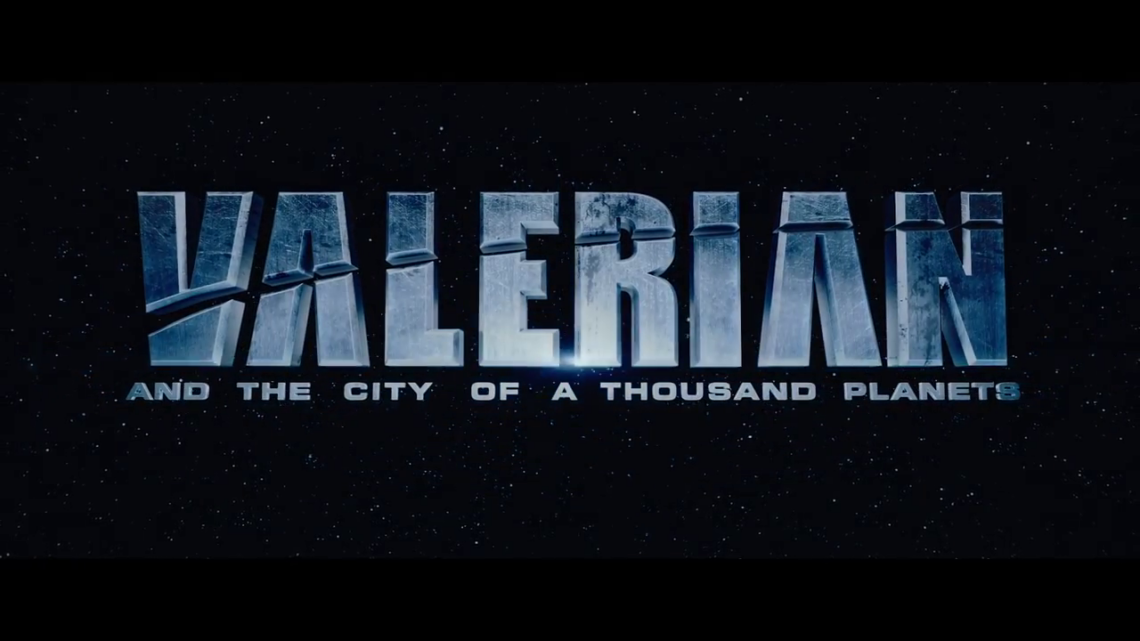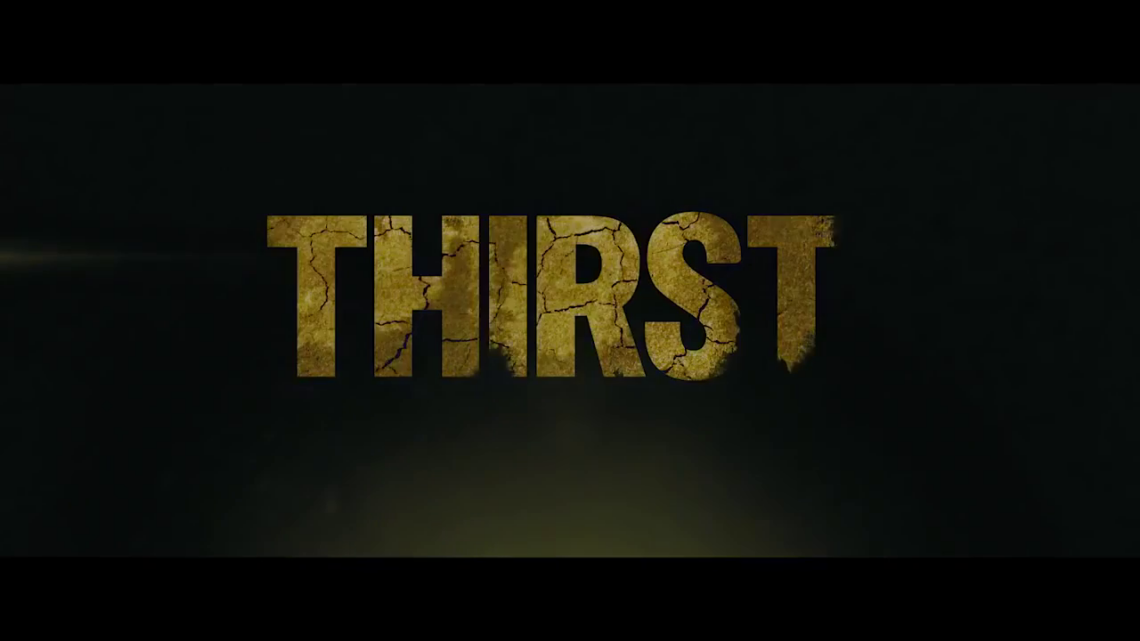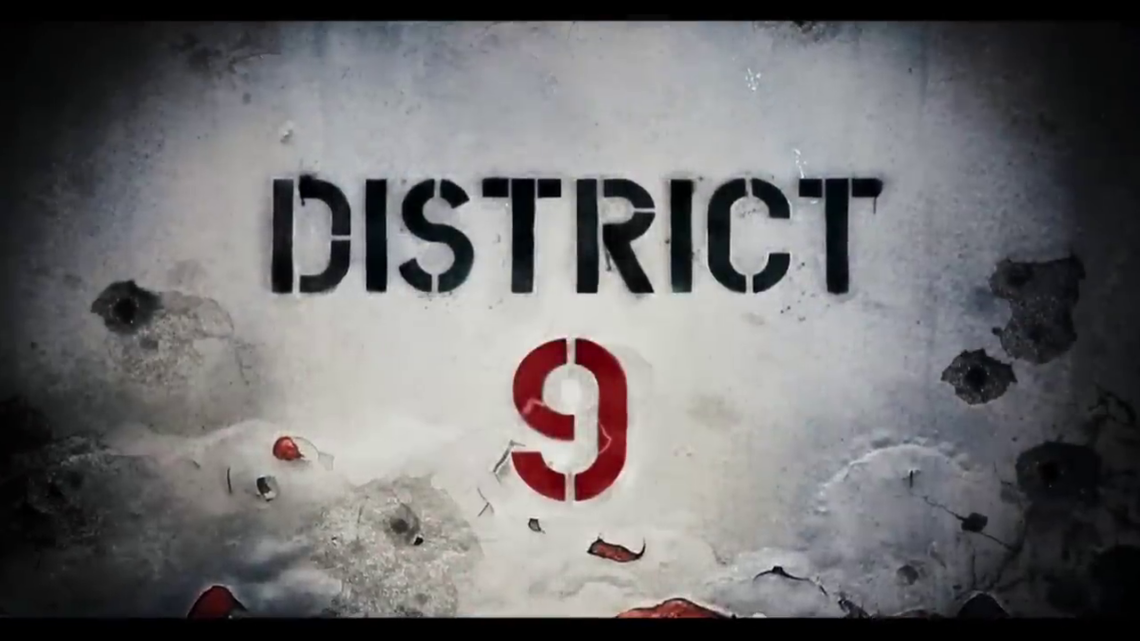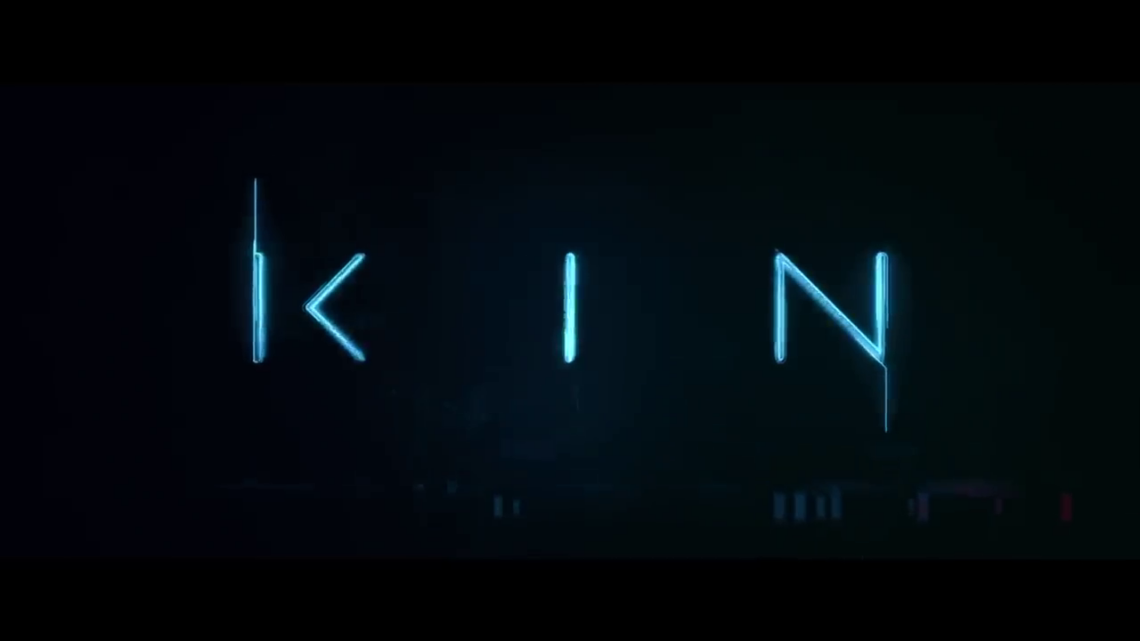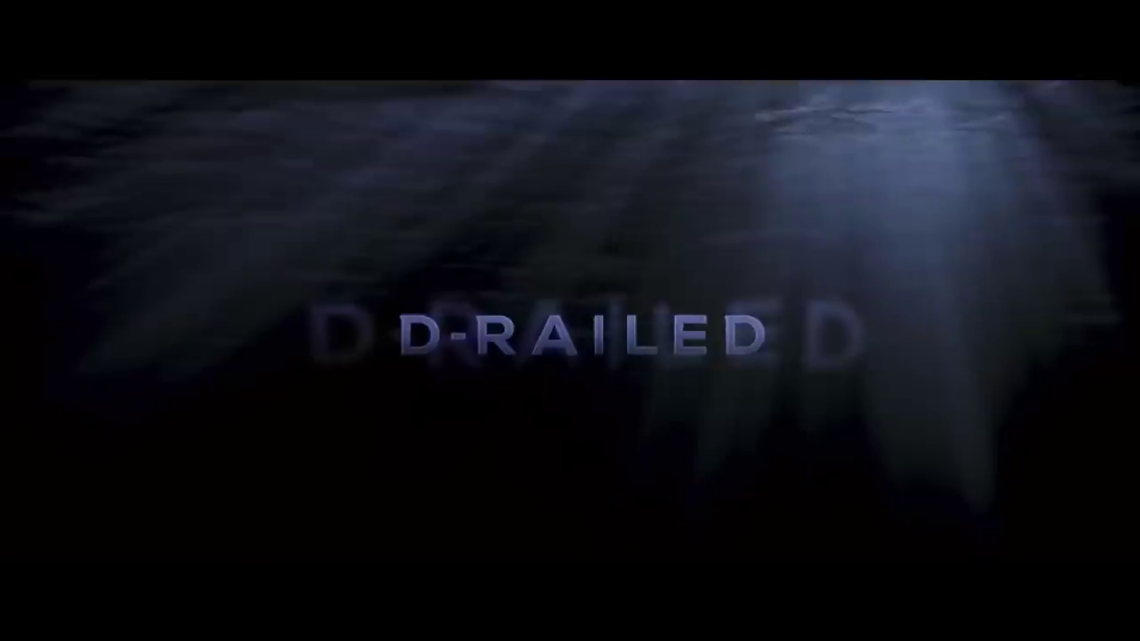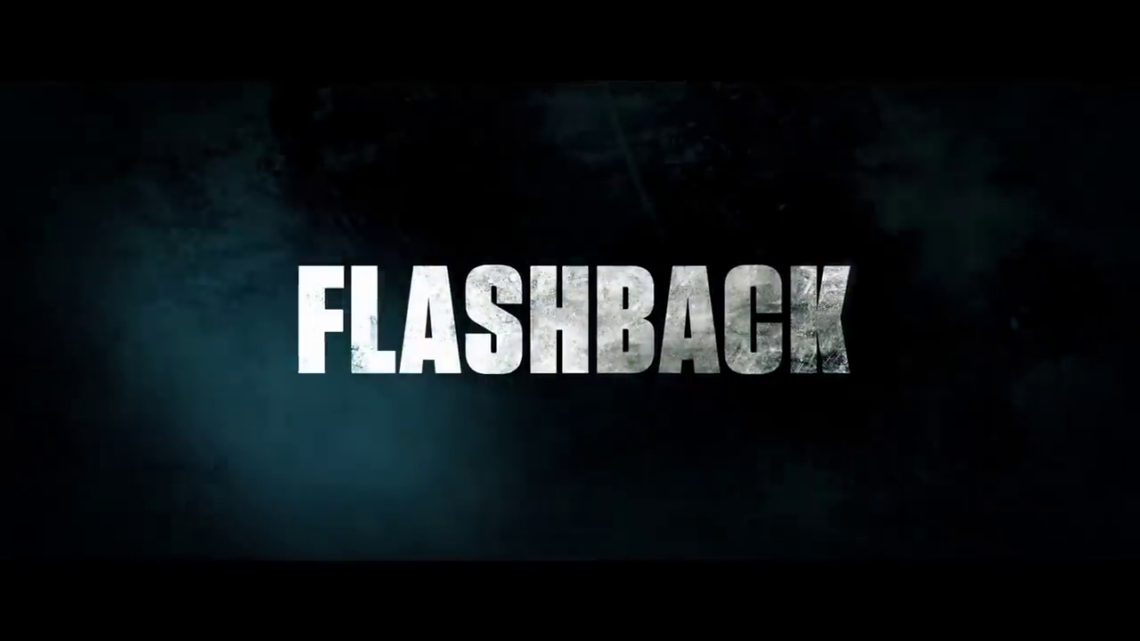-
#624 – Tremors (1990)



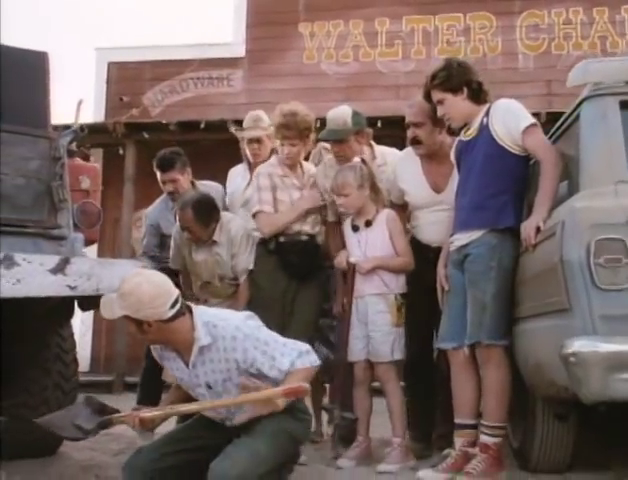
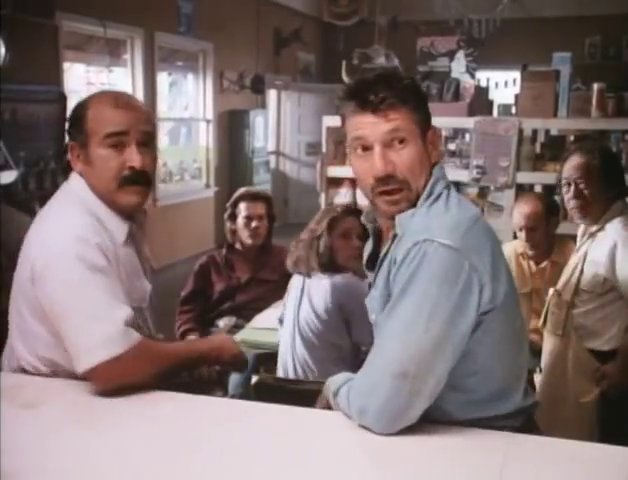




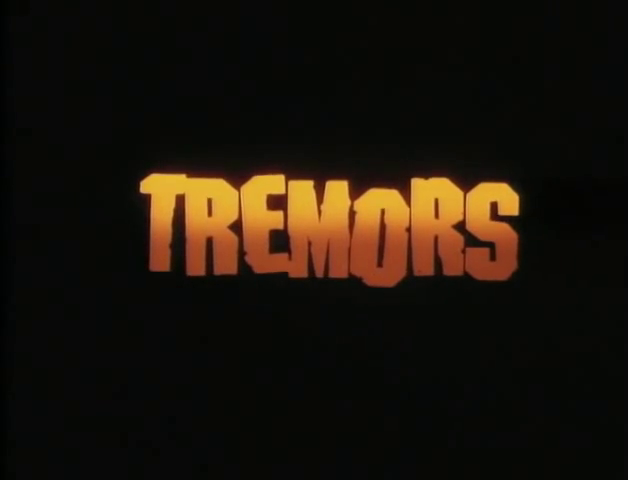
Tremors (1990)
Film review #624
Director: Ron Underwood
SYNOPSIS: Val and Earl are two handymen working in the (very) small town of Perfection, who decide they have had enough and decide to leave for the next town over. However, before leaving, they start to find the bodies of a number of townsfolk. Believing there to be a killer on the loose, they quickly learn that it’s actually the work of giant underground monsters that are picking off the population. Trapped in the town with no communication with the outside world, what remains of the town must band together to see off the threat before they become it’s next meal…
THOUGHTS/ANALYSIS: Tremors is a 1990 monster film. The film centres around Valentine (Val) and Earl, two handymen who live in the small town of Perfection in the middle of nowhere. They have plans to move to the town of Bixby, but on the way, they come across a number of Perfection’s residents who have been killed, and head back to Perfection to warn everyone. It turns out that the killings have been perpetrated by huge worm-like monsters living underground, who are dragging people down to their doom. As such, Val, Earl and the rest of the tiny town must band together to defeat the worm threat. The film has the flavour of a classic 50’s monster movie, harking back to a time when low budget monsters terrorised small American towns. Tremors is not so much a homage or parody of the films of those times, but a mix of comedy and horror that I think is best described as refreshing: it takes the key elements that made those films successful, but recharges them with a burst of energy that makes them feel up to date, with horror that balances tension and gore, while also slanting everything with a sense of humour that keeps things fun, without resorting to the easy parody of those classic films and taking cheap shots at their low budgets and cheap productions. It’s silly and goofy, without being degrading to the horror element, which is a very fine line the film walks well.
Strong chemistry between Kevin Bacon and Fred Ward as the leads really drive the film, and they’re quite different from the heroic, square-jawed leads that we used to get in monster movies. The rest of the supporting cast too feel genuine, and while may be more one-dimensional character, fill out the town’s population with authentic life. The creatures themselves are brought to life with some super cool practical effects that strive more for that classic b-movie feel rather than trying to be “real,” are nevertheless very well done, and they have a very destructive energy and scale whenever they are on screen, lending a strong sense of terror.
On paper, Tremors perhaps looks like another attempt to pay homage or parody the classic b-movie era of science-fiction movies, but it offers a pleasant surprise by exceeding in all aspects of it’s production. The film is kept energetic and fun thanks to it’s cast, and a genuine sense of improvisation that the characters have to do to take on monsters that they have never considered as existing. Balancing the line between horror and comedy exceptionally well, it carves out it’s own path with likable characters and plenty of terror and destruction. It’s difficult to find anything that’s done badly in this film: everything it does, it does well. Maybe it doesn’t quite shake that hokey, cheesy feeling some might get from the classic monster movies, but you shouldn’t be really looking for it to do so. Entertaining, silly, and terrifying all in one, Tremors rarely misses a beat, and is a refreshing take on the genre, rather than a reinvention that is nevertheless a captivating experience.
-
#623 – Invisible Dad (1998)
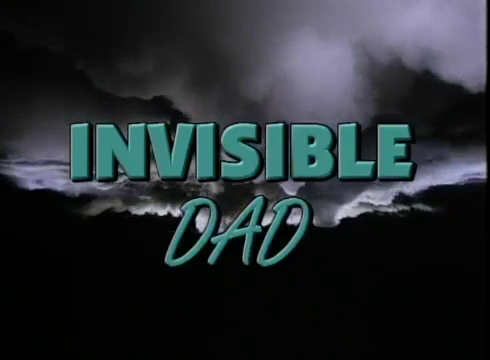

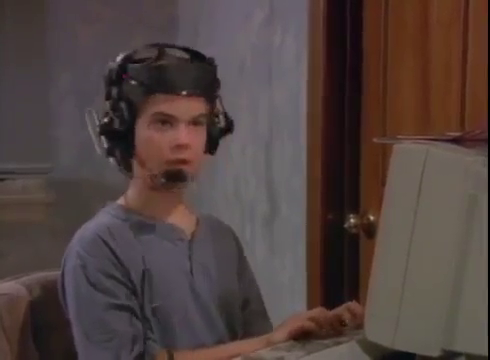
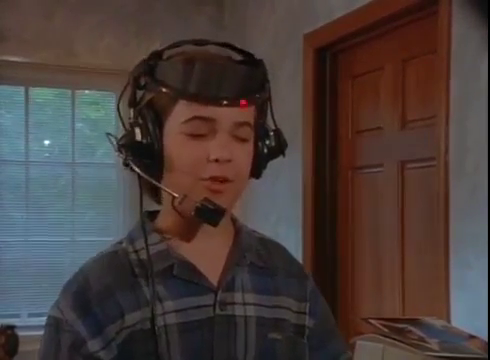
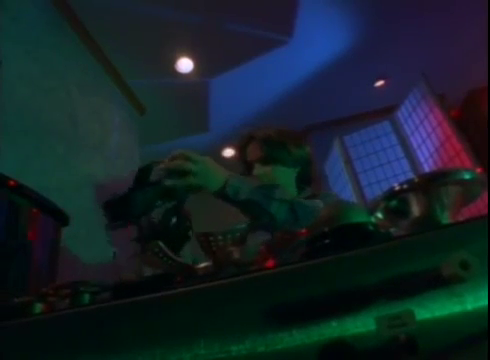
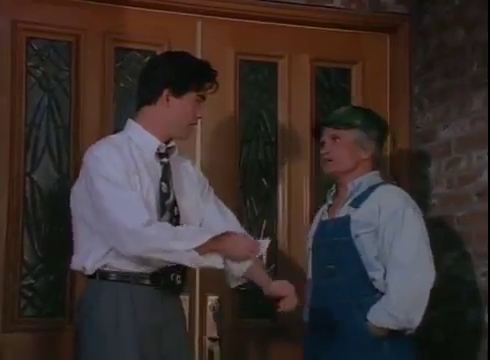
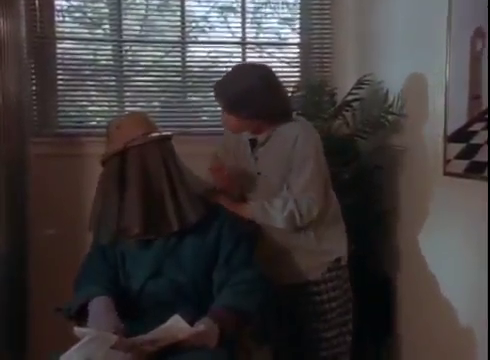
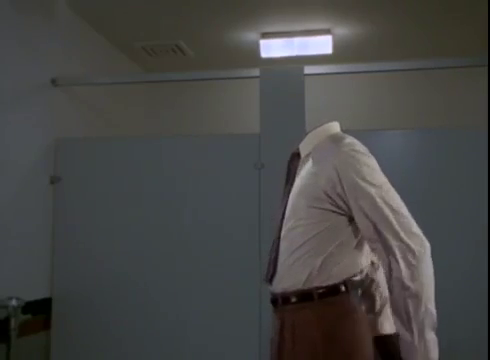


Invisible Dad (1998)
Film review #623
Director: Fred Olen Ray
SYNOPSIS: Andrew Bailey often moves around the country thanks to his job, with his son Doug. Arriving in their new home, Doug finds a strange device in the garage left by the former occupant. Hooking it up to his computer, he finds it can grant his wishes whenever he wears the headset to communicate with it. When he inadvertently turns his dad invisible, chaos ensues as Doug has to find a way to turn him back.
THOUGHTS/ANALYSIS: Invisible Dad is a 1998 sci-fi children’s film. It is somewhat a sequel to the 1996 film Invisible Mom by the same director, but features none of the original cast or settings. Invisible Mom II was released in 1999 (reviewed previously) is perhaps the true sequel, as it features the original cast and continues their story, so this film just exists in a strange void with no real continuity to the “franchise” (if we can call it that). Anyway, the plot this time concerns Andrew Bailey and his son Josh, who have to move around often due to Andrew’s work as an architect. In their new house, Josh finds some strange inventions in the garage left by the former occupant, one of which he hooks up to his computer. It turns out that this computer can grant any wish by simply speaking into the headset. By anything, I mean anything: Josh manages to make food appear out of thin air, teleport a model directly to his bedroom, and even travel back in time. When Josh’s Dad finds out about it, he tells him to destroy it because it causes too much trouble. Unfortunately, Josh wishes his dad would “just disappear” just before he destroys the device, and he turns invisible. With no way to turn back visible, they must find a way to fix the device.
There’s inherently some issues with the story here: The most glaring one is that Josh finds a device that can do anything: time travel, make anything appear, the works. The fact that the film is just about one man turning invisible is a bit underwhelming when you’ve already established everything else. Josh tries to plead with his Dad that they could print infinite money or anything, but he simply says it is too much trouble, which is a very weak cop-out. The film goes through all the expected tribulations of being invisible, with no real surprises in that regard. There’s a scene where Josh and his Dad are at a restaurant, with Andrew covered in clothes to hide the fact that he is invisible, and they are constantly interrupted by a man who cracks mean-spirited “jokes” after every line of dialogue; I mean, really nasty remarks about how ugly he probably he underneath all those clothes. It’s really odd for a kid’s film. Anyway, on top of the whole invisible thing, there’s also the sub-plot concerning Andrew’s job as an architect, and him needing to turn visible before his colleague steals his idea, and also before said colleague contracts a dodgy builder to build the project using sub-standard materials that will probably collapse and kill whoever is inside. Add in the romance sub-plot, and also the inventing partner of the guy who made the device, who now resides somewhere in the jungles of Africa, and you’ve got a film that is trying to do way too much. Lots of the plot elements get lost in the mix, and the whole invisible thing doesn’t really get enough time or attention to be interesting.
The characters don’t really have anything interesting about them: Josh is a typical lead whose Mom has passed away and he carries around a photo of her and such. It’s not too traumatic for kid’s. His Dad is a workaholic, and doesn’t take kindly to being invisible. There’s also Sandy’s teacher, who he tries to set up with his Dad, who doesn’t really have much of a role to play. However, Josh keeps constantly telling us how hot she is in his narration, which is a bit weird for a kid. Combine this with the pretty dire acting, and you’ve got nothing redeemable on this front.
Aside from the previously mentioned scene of the men-spirited harassment in the restaurant scene, there’s other parts of the film which are morally dubious too. there’s the dodgy contractor who is planning to kill Andrew to get his cheap material on the project he is working on, which never gets beyond meagre threats, but is still an odd addition. There’s also a part of the film where Josh literally goes shoplifting for computer parts, and his caught and thrown in jail. His teacher then breaks him out, and Josh’s Dad just overlooks his shoplifting, because he was doing it to “help him out,” which is a pretty weird message to be giving out in a kid’s film, and also since his character has already been established as not wanting to get into trouble.
Overall, Invisible Dad is a mess. It throws too much into the mix and ends up creating a directionless mess. Even for a kid’s film, there’s just nothing interesting or imaginative for them to latch on to, and I doubt that it would keep their attention long enough. Probably the worse of the invisible trilogy if I’m honest, as while the original had barely anything going on in it, it was at least easy to follow and mostly harmless, whereas Invisible Dad is all over the place, mean-spirited in parts, and sorely lacking in humour or charm.
-
#622 – Invisible Mom II (1998)
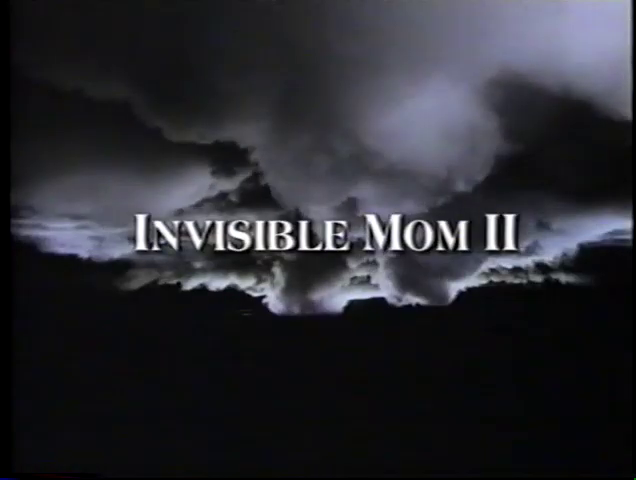
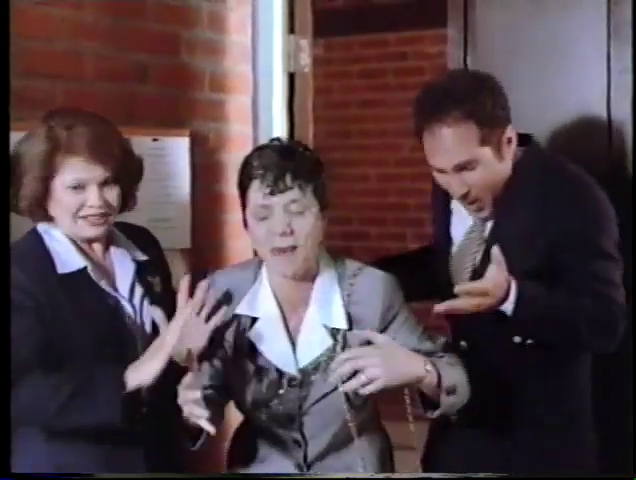
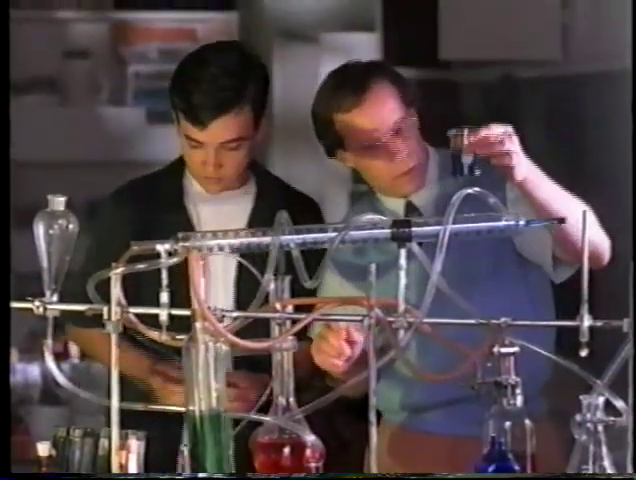

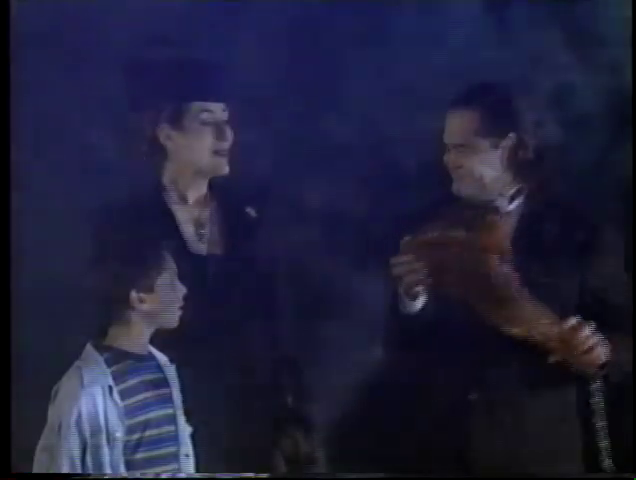
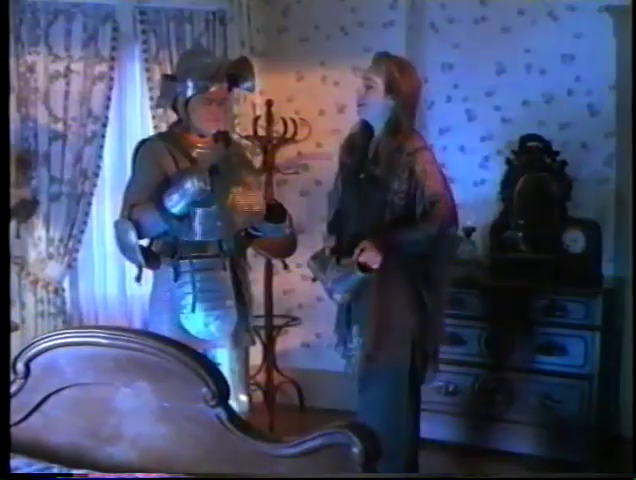
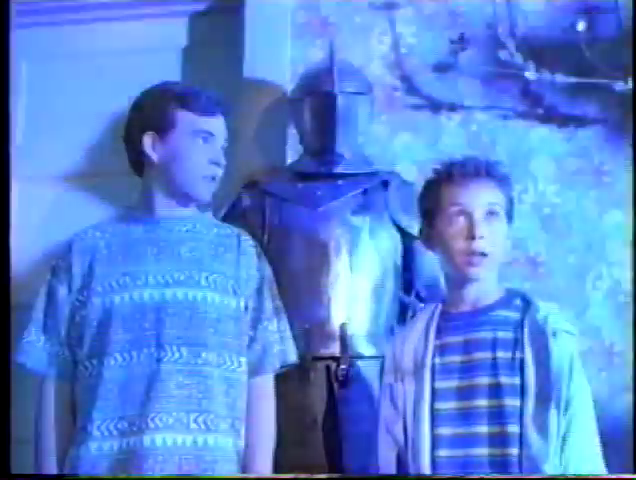
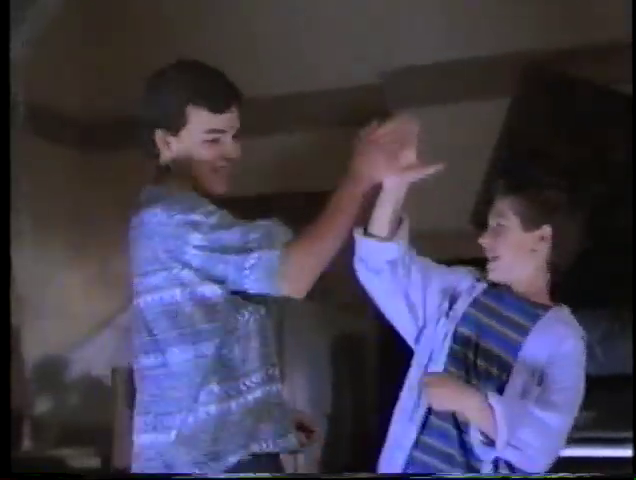


Invisible Mom II (1998)
Film review #622
Director: Fred Olen Ray
SYNOPSIS: When a millionaire passes away, his long-lost grandson Eddie becomes the heir of his fortune. Unbeknownst to him, he is stuck in an orphanage while the hunt for him goes on. He is fostered by the Griffin family, learning that Mrs Griffin has the ability to turn invisible when she is angry, thanks to one of her husband’s inventions. However, Eddie’s cousins take him away to adopt him so that they can claim the inheritance, and the Griffin’s must conduct a rescue before it’s too late…
THOUGHTS/ANALYSIS: Invisible Mom II is a 1999 sci-fi children’s film, and the follow up to the 1996 film Invisible Mom. two years after the events of the first film, we open to…something completely different, as a man lies dying in bed. His nearest family members eagerly await his death so they can claim his vast fortune, but upon learning that their young cousin Eddie is alive somewhere in Foster care and he will get the entire fortune, they hatch a plan to find and adopt him…and eventually kill him like they have the rest of the family to get their hands on the fortune. The plot is a fairly standard one for a kid’s film that’s simple enough to follow, and has distinct, yet goofy villains. It should also be noted that it actually has a plot, unlike the first film, in which barely anything happens other than Mr Griffin’s boss tries to take credit for the discovery.
Speaking of which, it turns out that the antidote Mrs Griffin took to turn visible again was only partially successful, and she still turns invisible when she gets angry…yes, I’m going to go for the obvious joke here: she’s basically The Invisible Hulk. The ending of the first film is hand-waved away, with the formula apparently being taken by the U.S. military and that’s the end of it. You might expect a familiar scenario of Eddie being angry or rebellious about his new foster home but…he seems to quite like it immediately: everyone is quite nice to each other all around, and there is no conflict anywhere: even when Eddie decides to try and clean a stain on Josh’s jacket with a handheld buzzsaw (????), Josh just shrugs and says he didn’t like it anyway. Again, I know this is a children’s film, but I’m sure it’s okay to have a bit of conflict and tension somewhere? The Griffin’s themselves are mostly unchanged from the first film: all the same actors return, although Josh is notably older now as he is a teenager, but we don’t get any exciting new character arcs or development for them.
Eddie’s cousins turn up to adopt him as his only living relatives and to take him to their home, with the intent of killing him off and collecting the inheritance. Josh stows away in their car, and when his parents learn of it, they must conduct a rescue, and Mom has to turn invisible to rescue them. It’s noteworthy that Mrs Griffin barely turns invisible: just three times, the first only happening half-way through the film. Eddie’s cousins as the villains are probably the stand-out characters: they really chew the scenery every time they’re on screen. Bernard is played by Micky Dolenz of The Monkees fame, and really has a voice that you can’t help but listen to. The last part of the film is essentially just Eddie and Josh running about the villains mansion (why do they need the inheritance when they clearly live in a mansion?) while they try to off the children. It’s not terribly exciting, and as mentioned, there’s not much of any “invisible Mom” shenanigans that add anything to the formulaic plot. Despite all these criticisms, it is well acted, with Dee Wallace as invisible Mom, Micky Dolenz as mentioned, and Justin Berfield as Eddie, who would take the role of Reese in Malcolm in the Middle a year or so later. the film tries to have a bit of fun, but loses its way the moment it tries to veer outside the very formulaic plot. Nevertheless, it is an improvement over its predecessor, if only for the reason there is a bit of a story. Still not a great film, and certainly not for anyone other than young kids who can overlook the gaping plot-holes.
-
#621 – Valerian and the City of a Thousand Planets (2017)
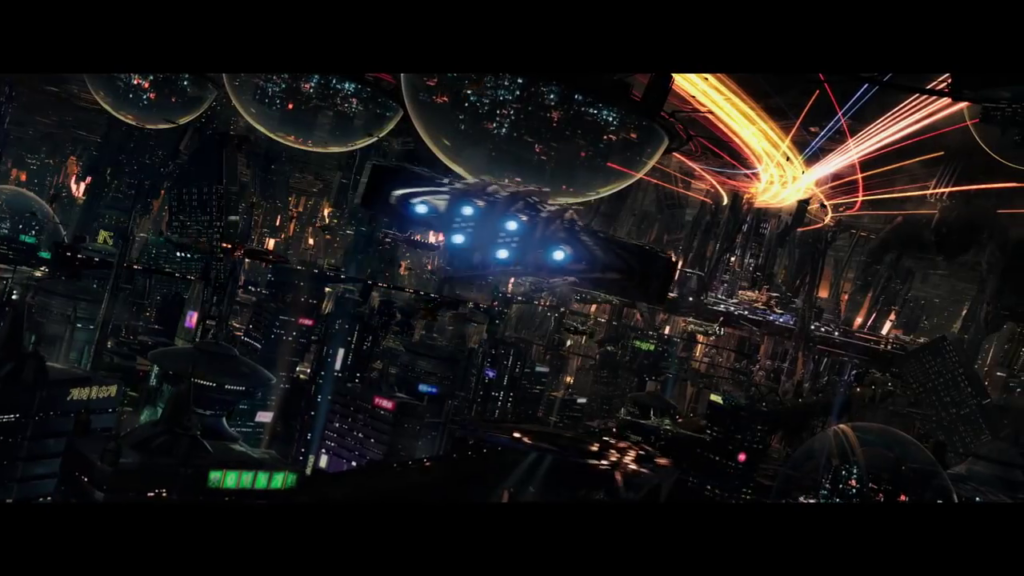
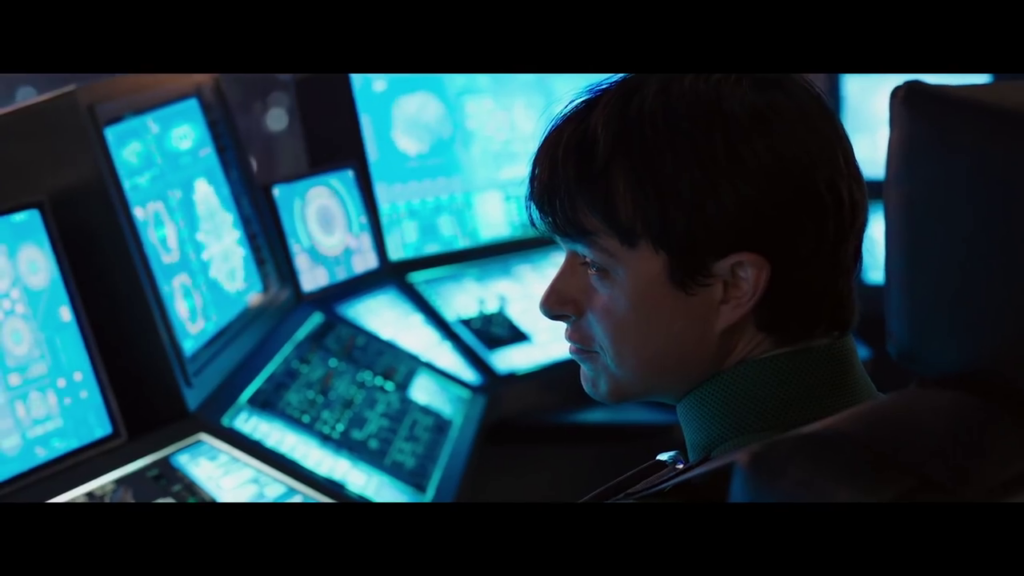
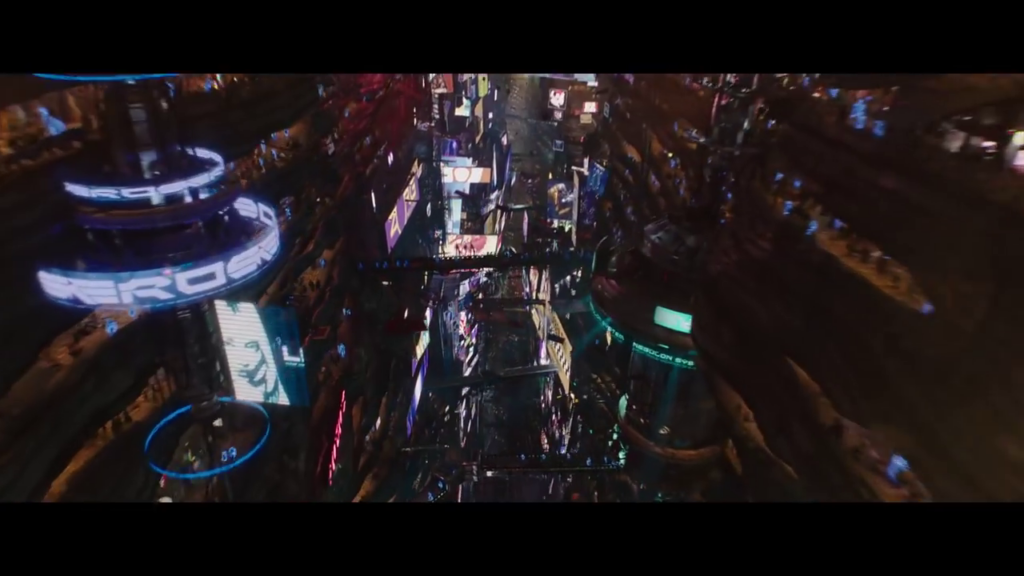
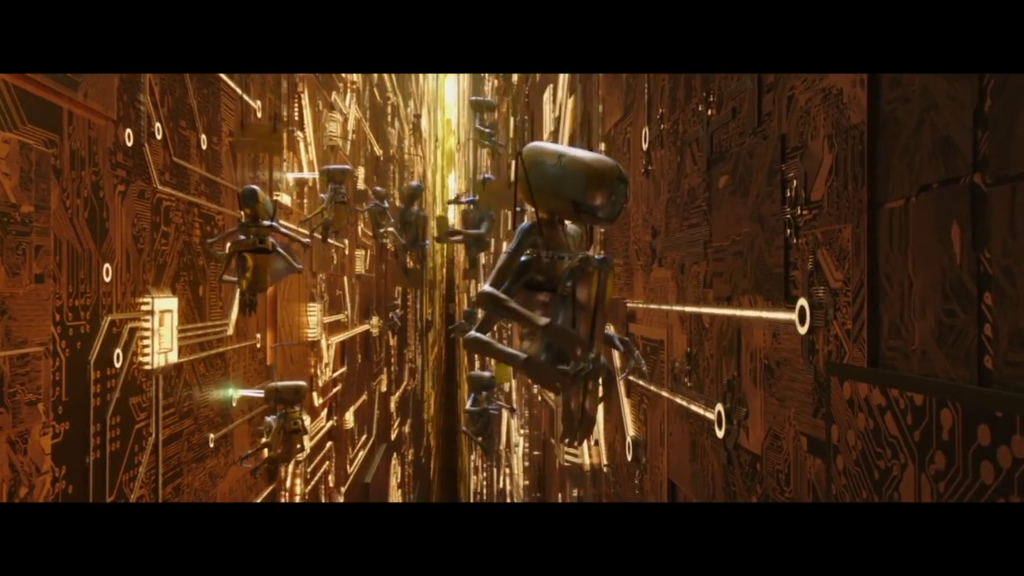
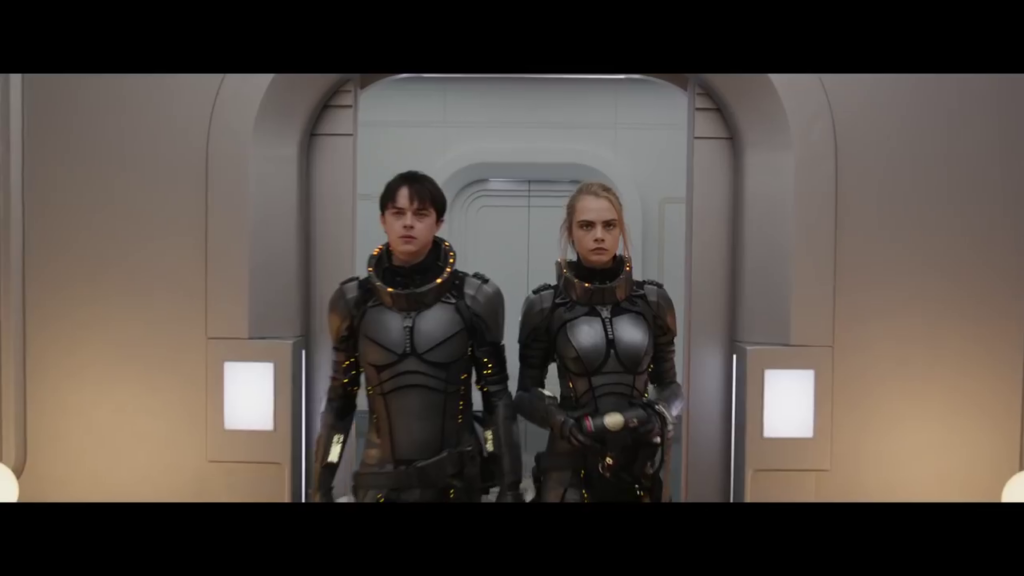
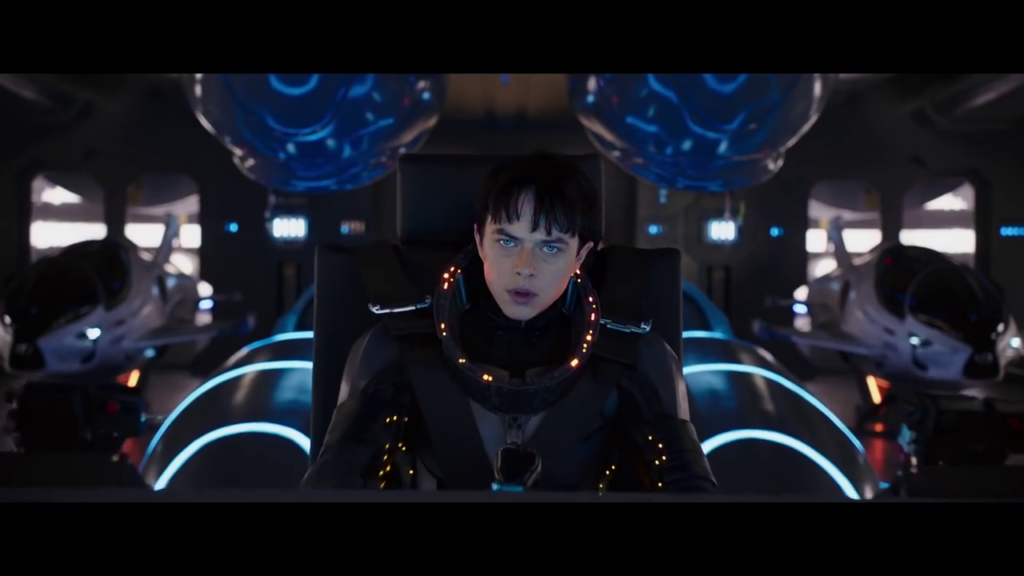
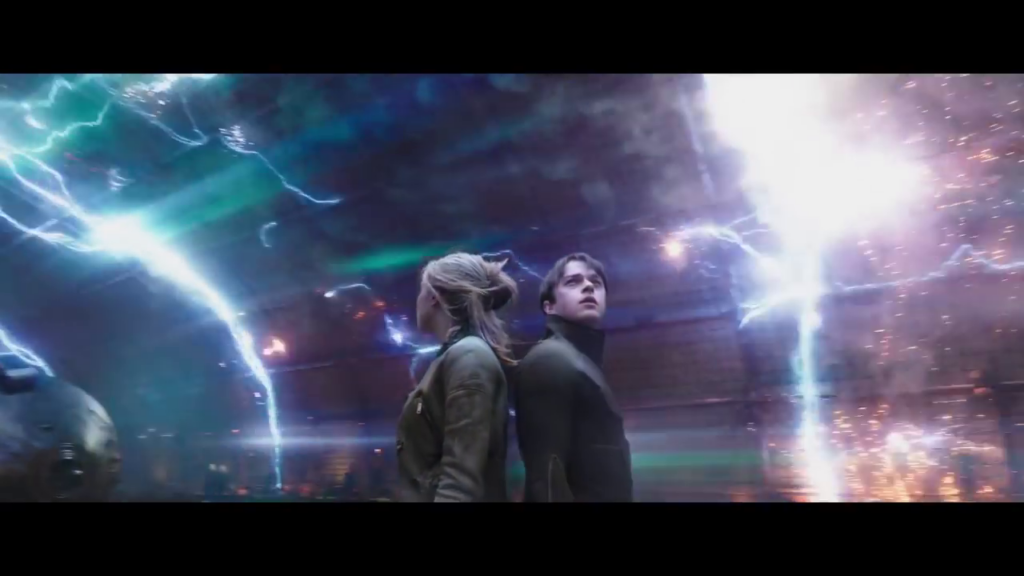
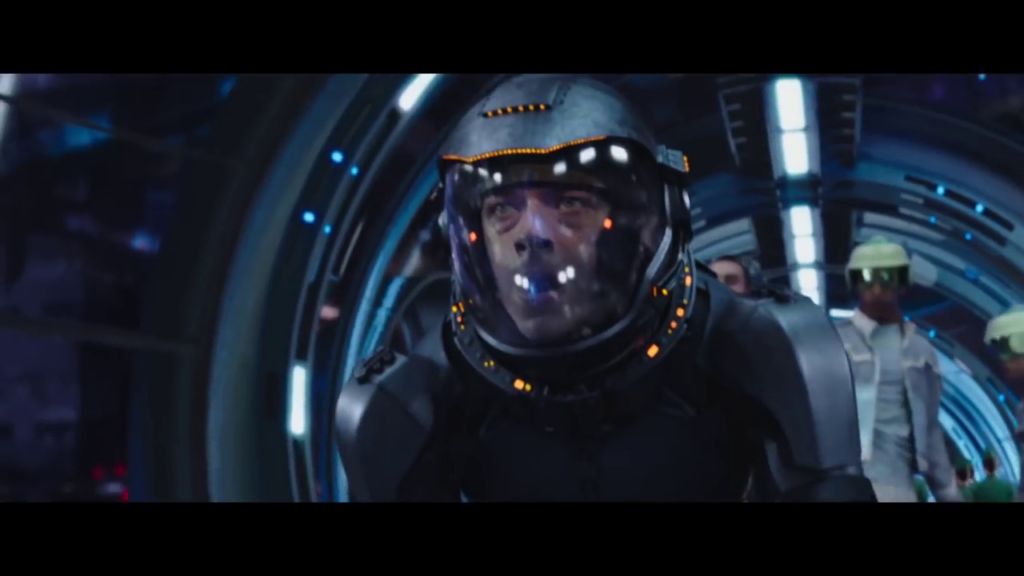
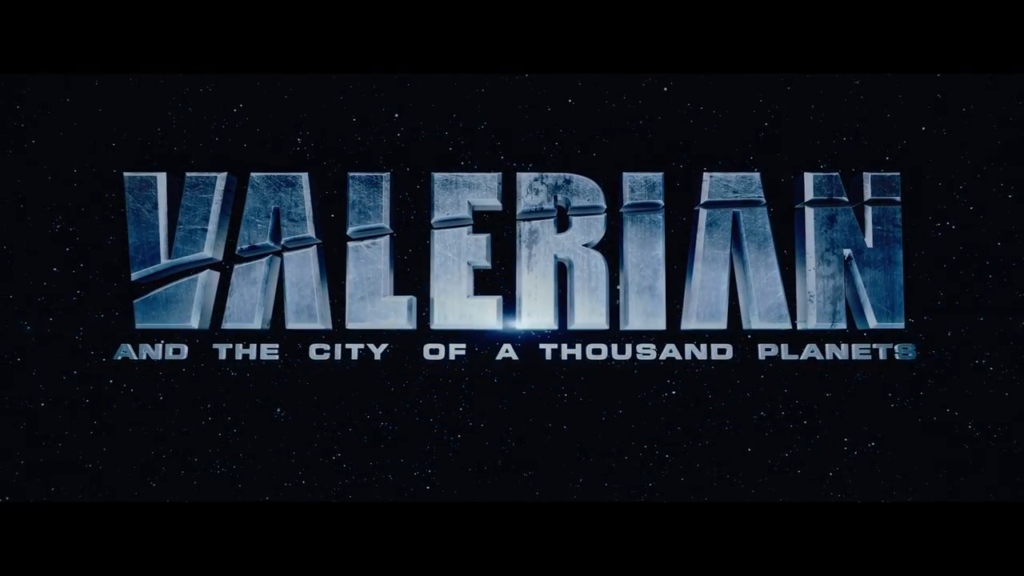
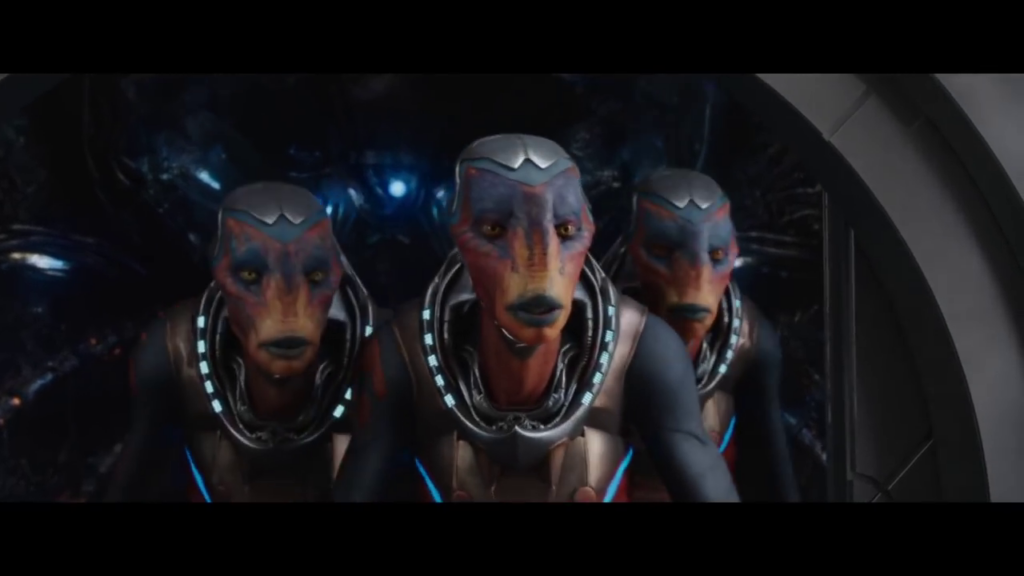
Valerian and the City of a Thousand Planets (2017)
Film review #621
Director: Luc Besson
SYNOPSIS: Alpha is a vast artificial city in space that houses over a thousand different species from across the galaxy. When a mysterious radiation threatens the city, military operatives Major Valerian and Sergeant Laureline are tasked with saving the city, and in doing so, uncover a dark secret that someone is trying to keep buried…
THOUGHTS/ANALYSIS: Valerian and the City of a Thousand Planets is a 2017 film based on the graphic novels of the same name. Humans built a city in space named Alpha, which gradually became home to many different species of aliens as well, and when it became too large, a plan was made to launch it from the Earth’s orbit into space. Some centuries later, the city is home to over a thousand species. Two members of the human military, Valerian and Laureline, are assigned a top secret mission to find out the cause of a radiation leak at the heart of the station that will overwhelm the station in a month unless they can stop it. Directed by Luc Besson (The Fifth Element), the film clearly owes its greenlighting thanks to the success of James Cameron’s Avatar in the sense of having CG non-humanoid aliens being a focus of the film. This is particularly prevalent in the opening scene, which focuses on a race of blue aliens clearly reminiscent of the Na’Vi. This really is a film of two halves: in the first half, we get introduced to the city of Alpha and all of it’s inhabitants, and we get a look at all the creative designs for the different species that reside in the city. We are also introduced to our main characters Valerian and Laureline, two soldiers in the human army, and a story that isn’t too original, but has enough urgency and energy to get things moving. The second half of the film in terms of story really starts to flag, as it resorts to more typical scenarios that don’t offer quite as much excitement. It’s still reasonably entertaining, but you can tell it is playing it safe by falling into using typical tropes. Even with the success of Avatar, perhaps the mainstream filmgoer wasn’t ready for something too alien.
One of the main threads of the film is the relationship between Valerian and Laureline, and the latter’s reluctance to accept the former’s advances. You know that she’ll eventually give in, and the film offers no surprises in that regard, but the journey getting there isn’t told as well as it could be: Laureline says Valerian needs to “grow up” and understand “what love is,” but it never feels like he makes that growth as a character, and she just…accepts him. Despite the strength of her character, she does fall into the role of getting kidnapped for a chunk of the film, and although it does try to not paint her as a damsel in distress, ultimately, that’s evidently what the film does. Dane DeHaan’s performance as Valerian delivers the cheeky rogue-ish elements of his character, but lacks the emotional depth and growth in his performance to underpin the main character’s relationships, as it doesn’t feel like he achieves the growth the film tries to portray he has. The rest of the supporting cast are fine, and don’t really stand out too much. Rihanna as “Bubbles,” a shapeshifting alien, is of note just because of how shoe-horned into the film it feels like it is. The film literally stops while she does a two minute-dance number, and she just shares the screen time until Laureline is rescued and she dies, being never mentioned again. It’s…a cameo that wasn’t necessary but someone obviously wanted in there.
In terms of effects and CG, it’s certainly impressive in terms of scale and creativity. Over two hundred species were designed and feature in the film in some way, and while we don’t get much depth into most of these aliens, we certainly get a more interesting variety than we do in Avatar. The action scenes are fast, colourful, and showcase more of the alien designs, but I can’t help but feel like this diversity could have been weaved more into the story somehow, as despite all of these alien species, the film focuses a lot on human affairs and leaves the aliens in the background. Overall, Valerian and the City of A Thousand Planets looks good, showcases a lot of creativity, and is fast-paced and entertaining, but equally is hampered by a fairly flat script full of unoriginal plot points, and a lead performance that doesn’t hit the notes it needs to. Fairly balanced between its positive and negatives, but entertaining enough to sit through despite its flaws.
-
#620 – Thirst (2015)
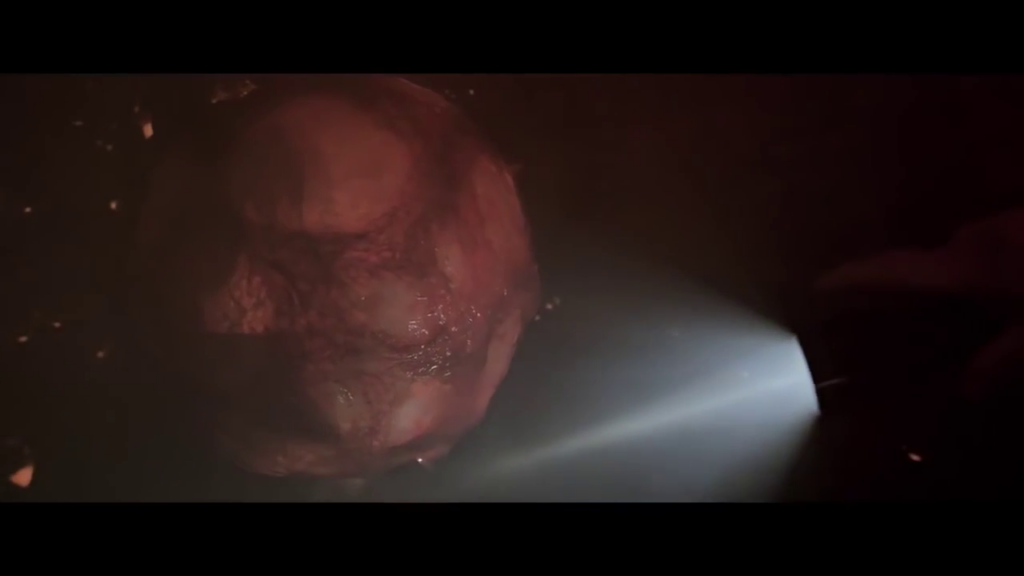
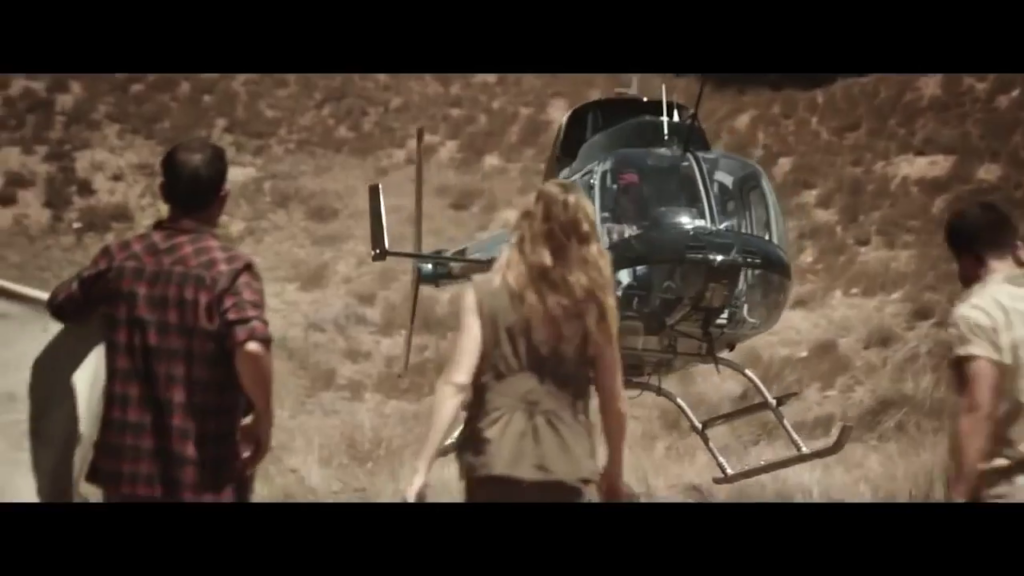
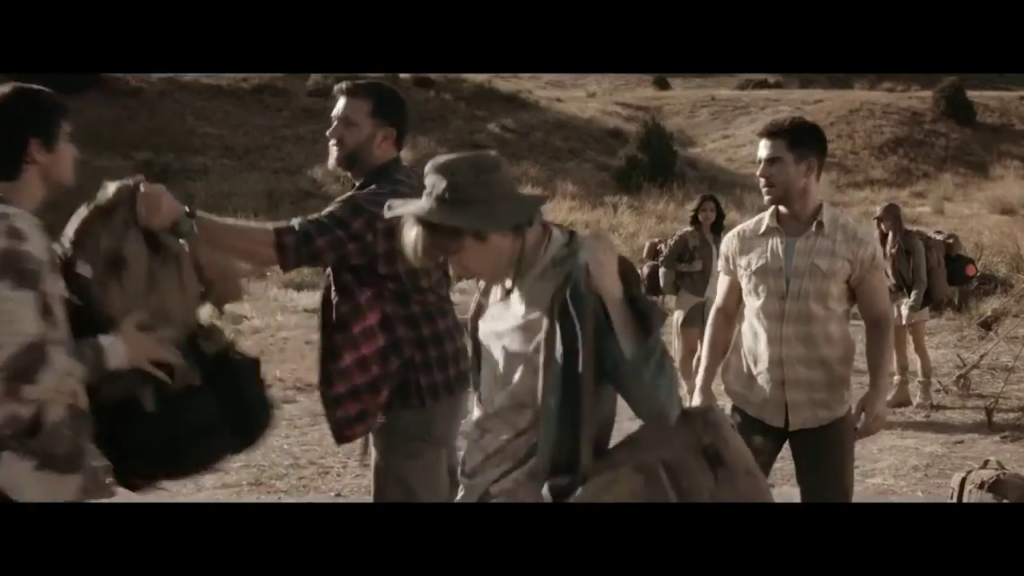
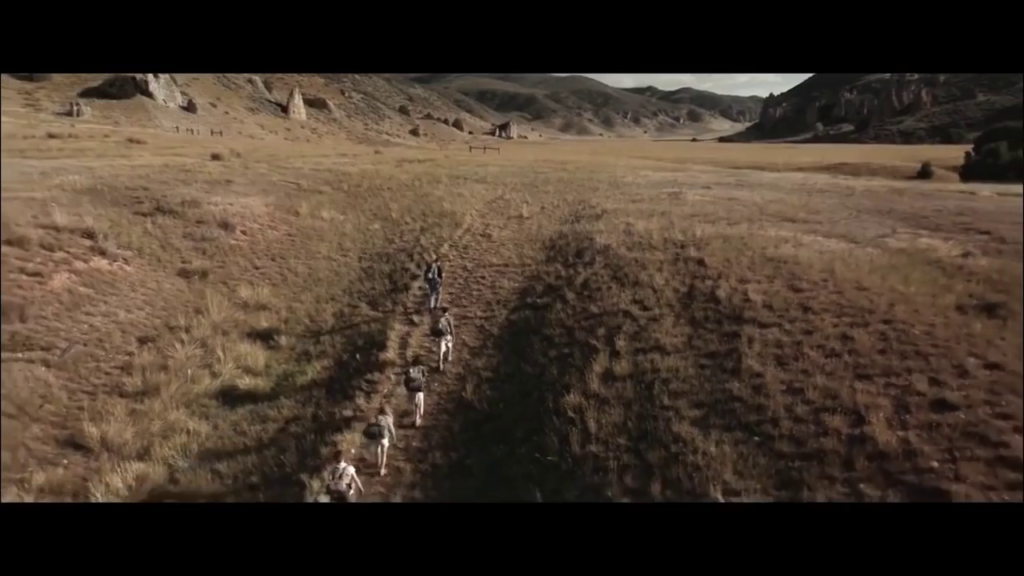
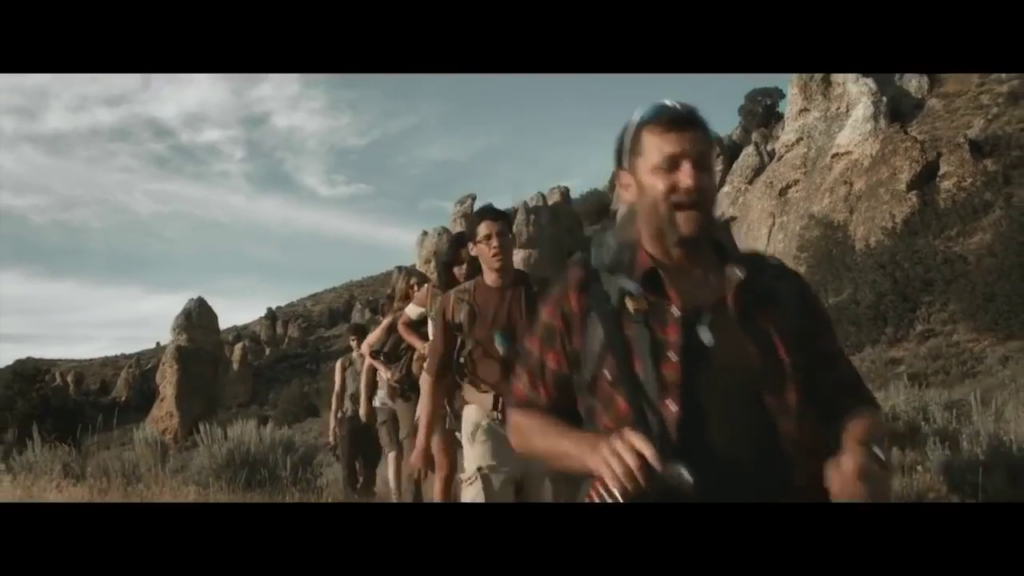
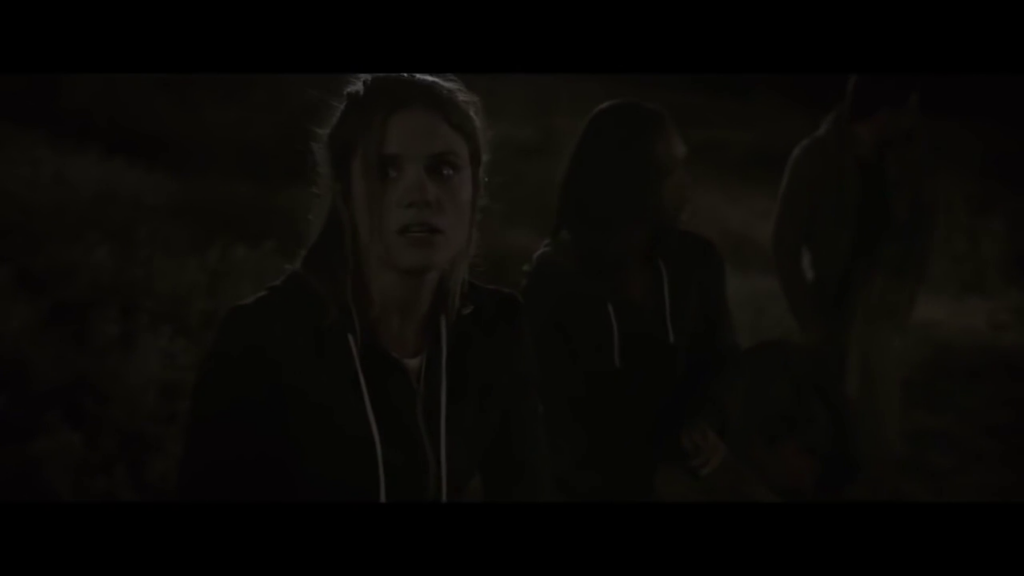
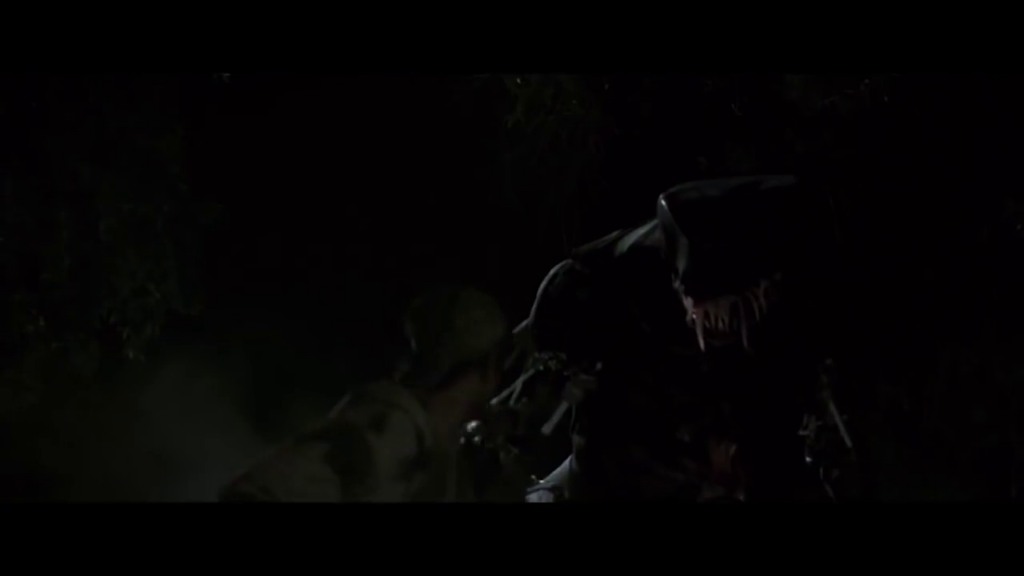
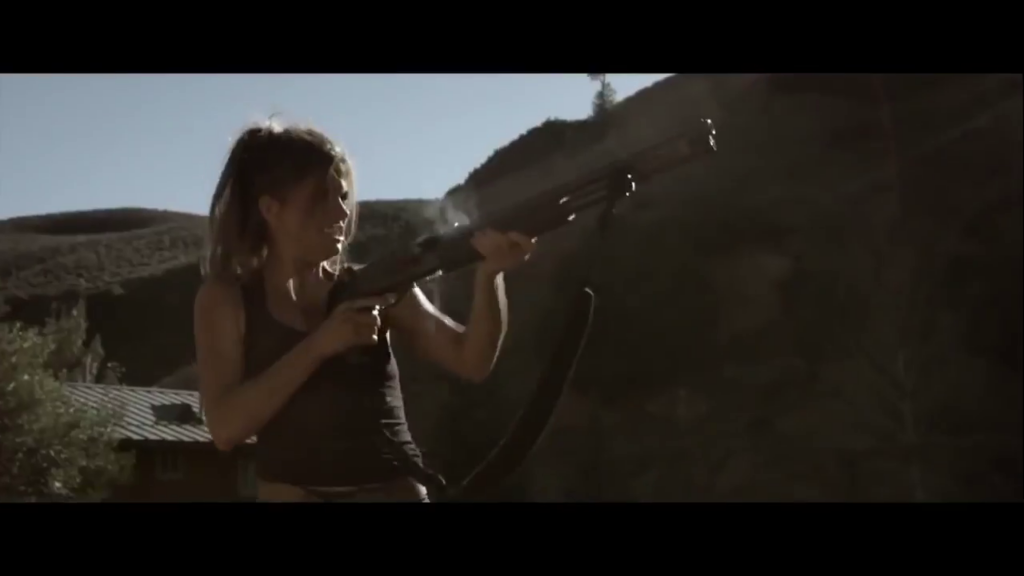
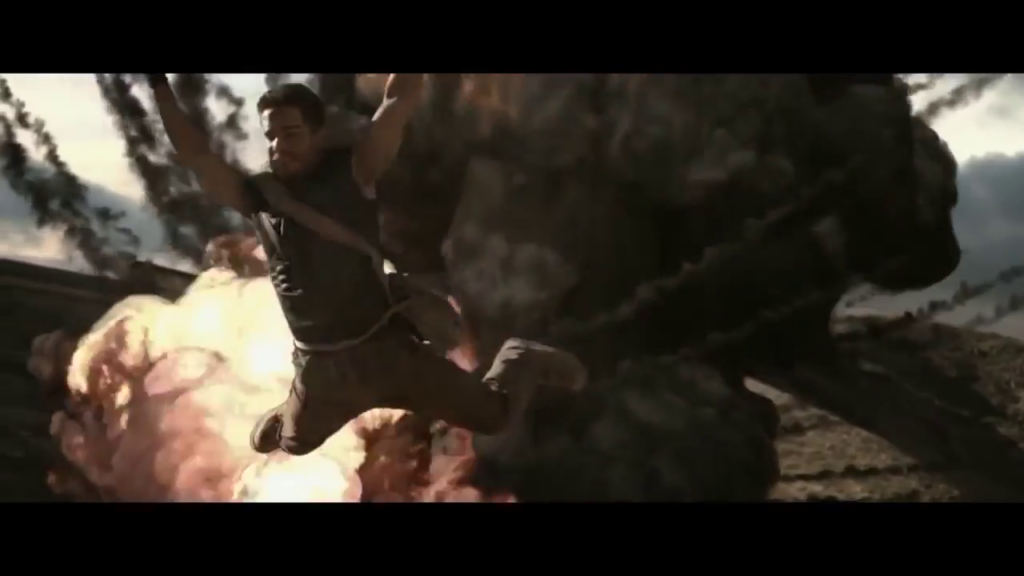
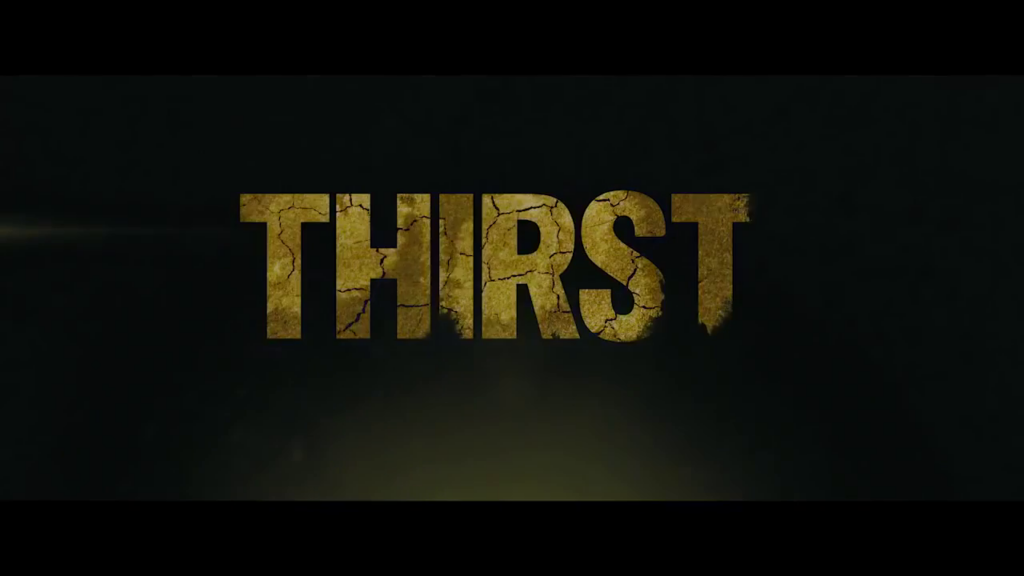
Thirst (2015)
Film review #620
Director: Greg Kiefer
SYNOPSIS: A group of young delinquents are sent into the wilderness to a couple who aim to toughen them up and make them responsible members of society by hiking through the wilderness. Unfortunately, lying in wait is an alien creature that aims to suck them dry, and with no means to contact the outside world, the group must try to survive before they are all hunted down…
THOUGHTS/ANALYSIS: Thirst is a 2015 sci-fi horror film. Opening up like every other horror film, we see an nameless character get murdered after discovering some sort of alien blob…thing. Cut to the film proper, a group of delinquent youths have been sent by their parents or whomever to the middle of the Californian wilderness (i.e. nowhere) to be subjected to a ten-day hike by a couple who run a business of toughening up such youths to make them productive members of society: that’s the story anyway, but it seems very dubious and highly illegal. Anyway, the group eventually stumbles upon an alien that wants to suck people dry (?), and they must find a way to survive and escape. It is, in short, every other creature/monster-based horror movie, with no real surprises or novelties to make it interesting. The plot points are predictable, and a lot of the film is just a lot of shouting and running around the middle of nowhere without being able to generate any real sense of atmosphere or terror. It’s not even hilariously bad, it’s just boring and nonsensical.
The characters are the usual bunch of horror unlikeable stereotypes: they don’t really develop as characters, and their deaths aren’t really impactful. One character in particular does virtually nothing and survives near to the end of the film, and I wonder if someone just forgot to do anything with them. Killing off the two “adult” characters could have been an interesting twist that forced the younger ones to grow up, but it doesn’t really happen. The alien is obviously a Xenomorph rip-off with no attempt to be original. For some reason, it’s also half-metal, which makes no sense. We’re given no sense of what this alien is or how it works, which isn’t too much of a deal insofar as we don’t need to know it’s motivations, but it would be nice to give the alien some substance to make it stand out.
Obviously made on a budget, the film just consists of the cast wandering about in the middle of nowhere as mentioned, and the special effects are unconvincing at best. No jump scares, no atmosphere, no tension, and no originality, Thirst won’t quench the need for a good horror.
-
#619 – District 9 (2009)
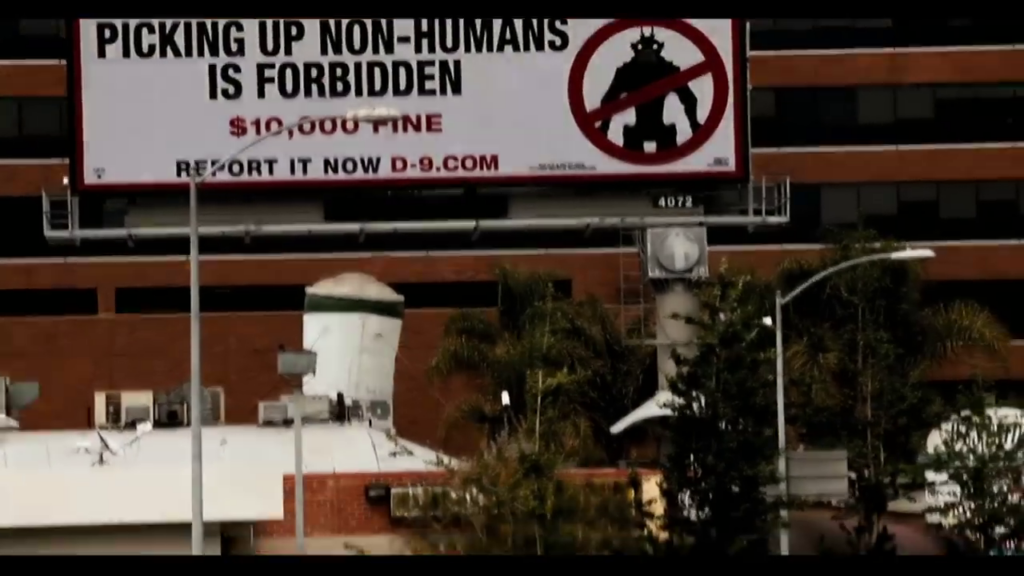
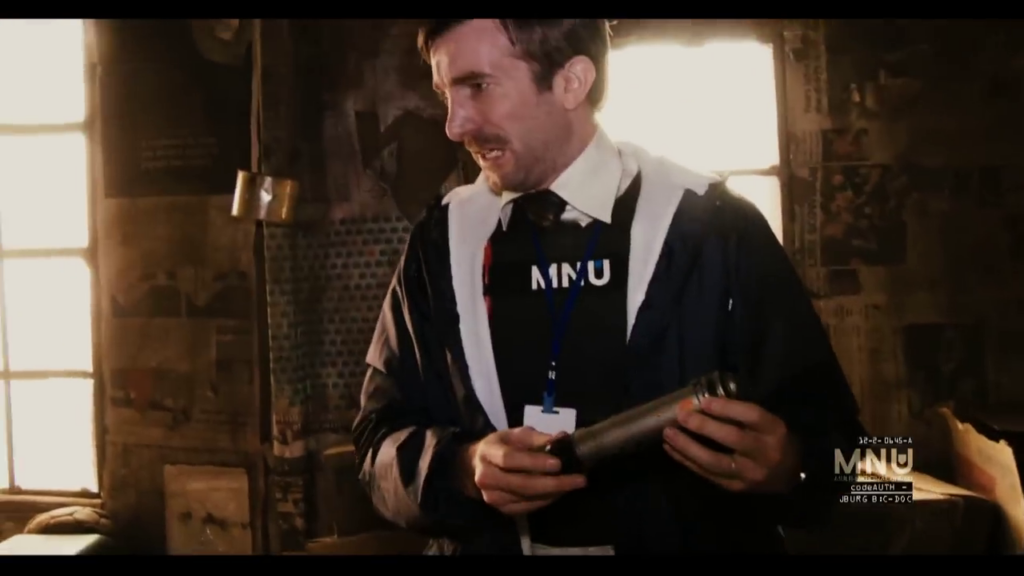
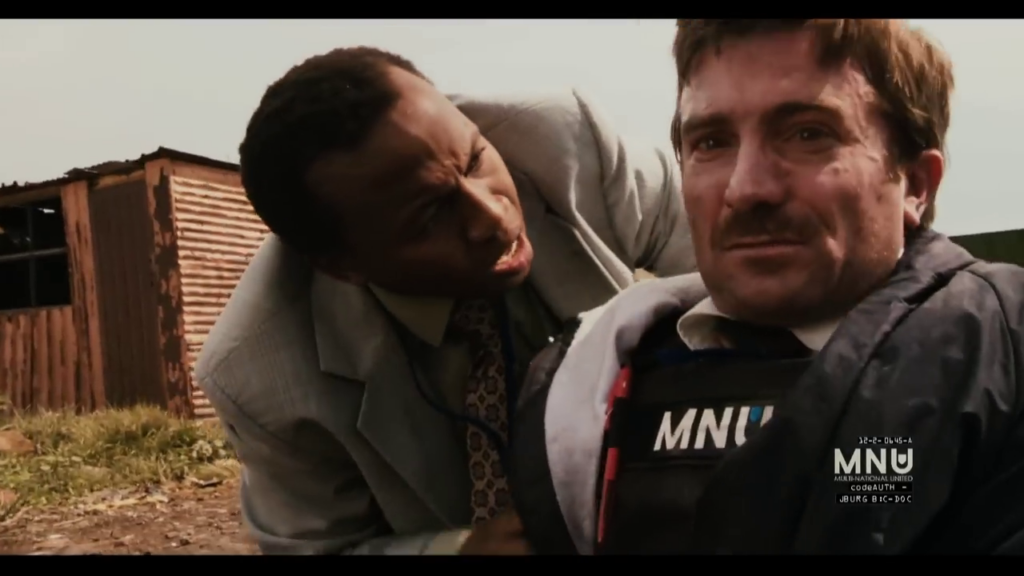
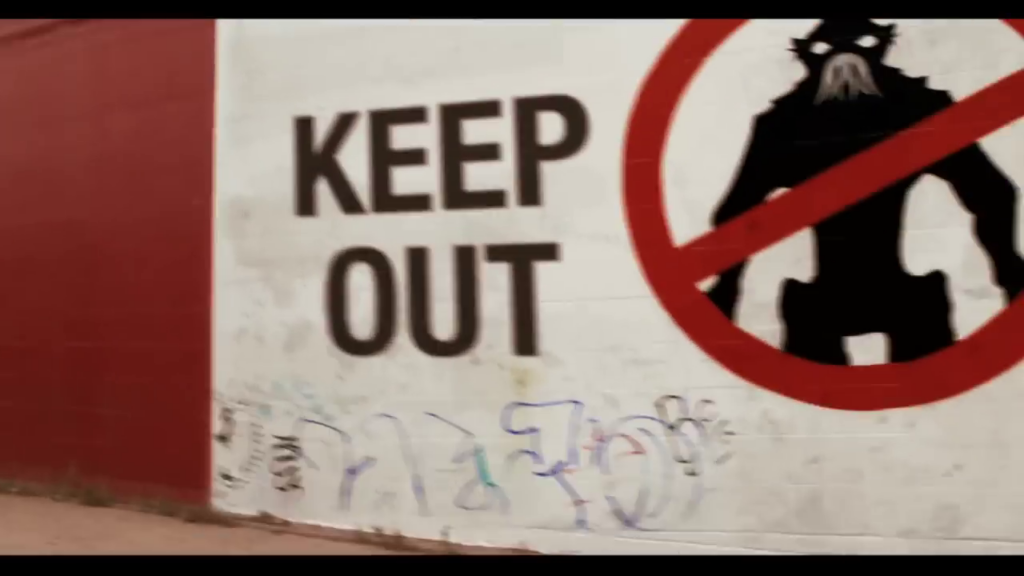
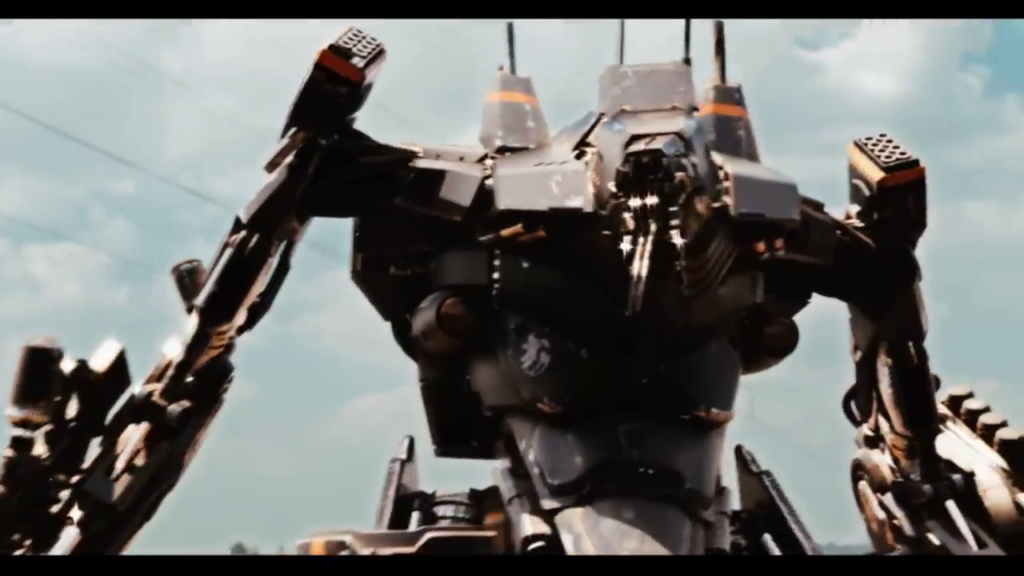
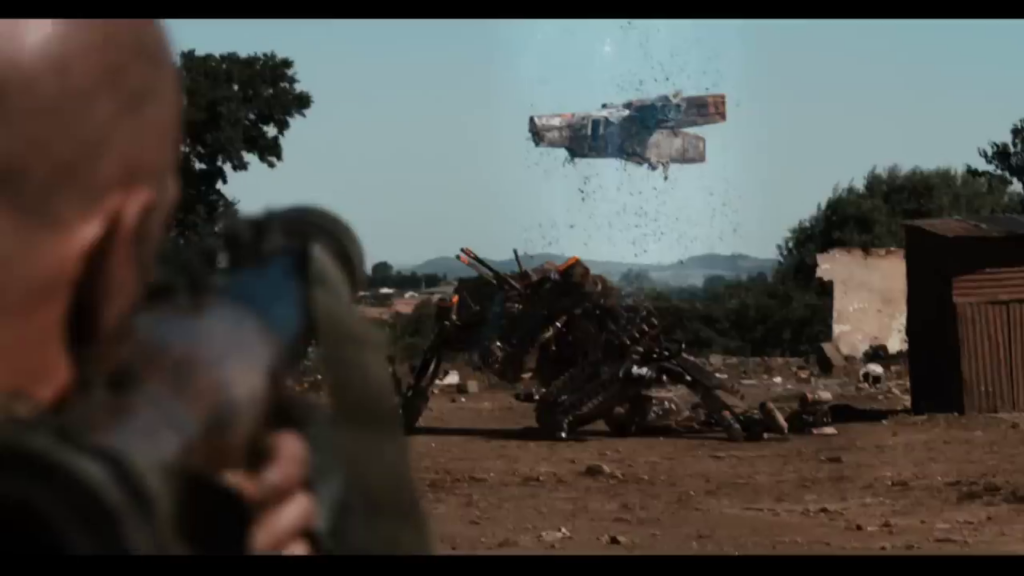
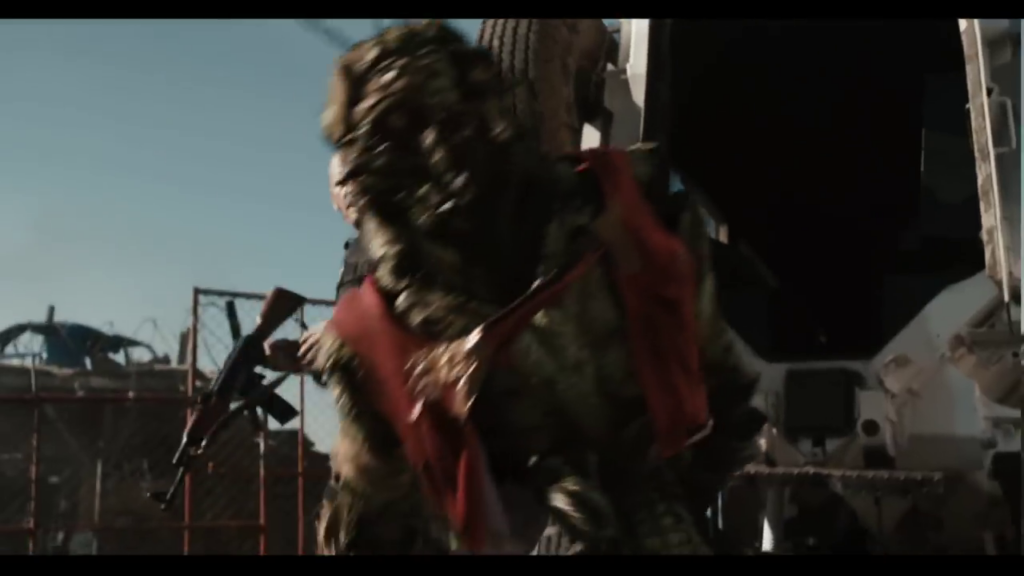
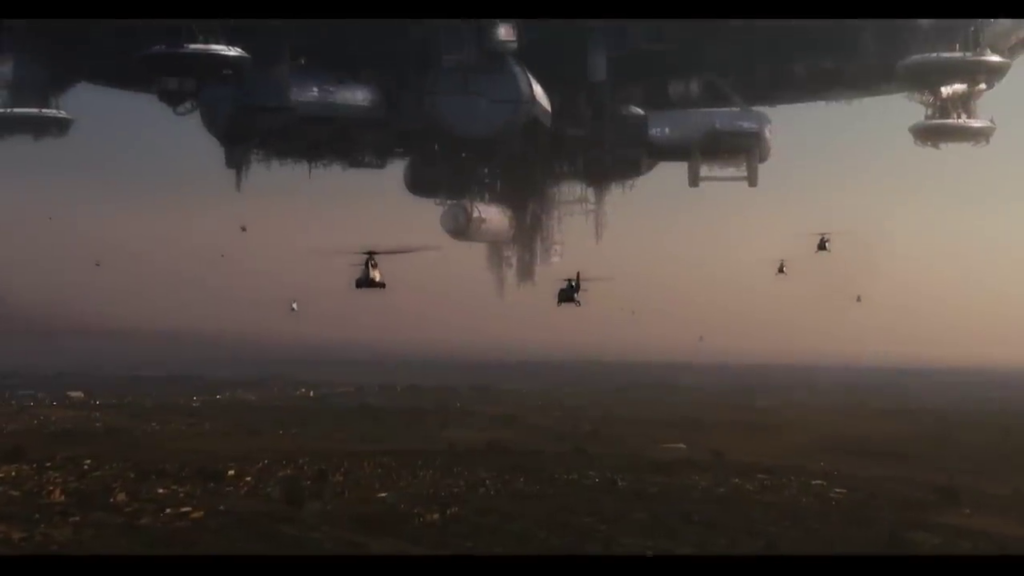
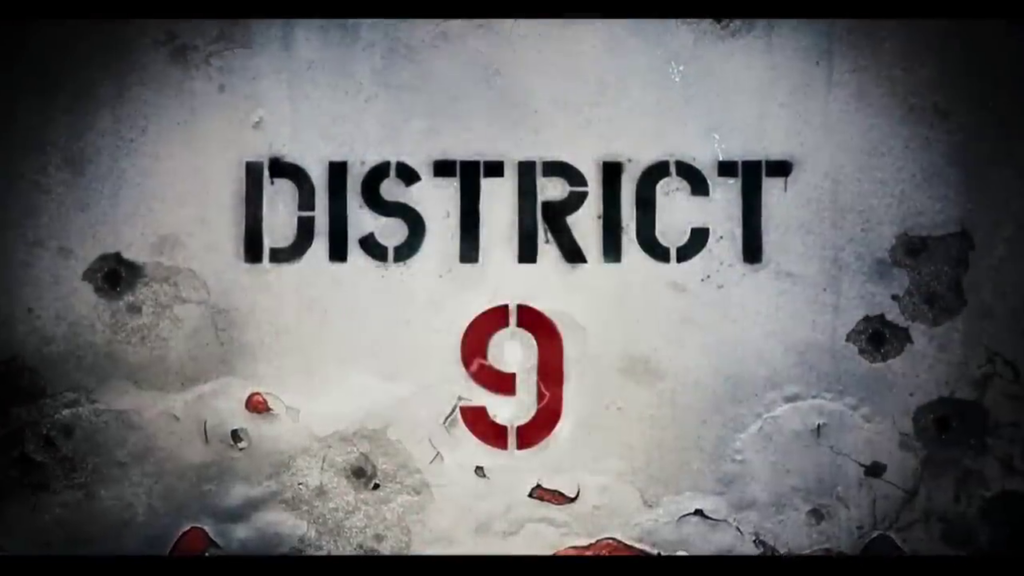
District 9 (2009)
Film review #619
Director: Neill Blomkamp
SYNOPSIS: 28 years after an alien ship arrived on Earth hovering over Johannesburg, the alien inhabitants are confined to a section of the city known as “District 9.” When the decision is made to “relocate them (forcibly) into a new camp outside of the city, Wikus van de Merwe is put in charge of leading the relocation, but when he is exposed to a strange substance, he finds himself slowly turning into one of the aliens, and is confined to be experimented upon. When he escapes, he seeks the only place where no one will look: district 9…
THOUGHTS/ANALYSIS: District 9 is a 2009 sci-fi film. 28 years after a spacecraft arrives to Earth, stopping to hover directly over Johannesburg. The alien inhabitants were cut free and settled in a sealed-off region of the city known as “District 9.” Now, after resentment has grown by humans for the “prawns” living in the city, seeing them as responsible for crime and costly, the government has decided to relocate them to a camp outside of the city, and hired weapons company Multinational united (MNU) to oversee the relocation. The head of the company chooses his son-in-law Wikus van de Merwe to oversee the operation, and they begin the task of delivering notices of eviction to the residents (and relocating them whether they agree or not). Wikus is exposed to a strange substance that slowly turns him into a prawn, which leads to him being contained and used for experiments (particularly in using the alien’s weaponry which only they can use). The film’s method of storytelling and giving the backdrop to the film through reports, interviews and documentary footage is a bit chaotic but it nevertheless gets the background of what is going on well, and makes it interesting without devolving into just plain exposition. Being set in Johannesburg brings us a setting different from the usual settings of films in New York or Los Angeles, and the location obviously brings up echoes of apartheid with the prawns being fenced off from humans. The film doesn’t really lean too much into that though: maybe it’s fine with just the setting being enough to offer an analogue between fiction and reality, but it does feel like it’s something that should be more of a focal point given the setting, but isn’t. There’s an element of satire that pervades over proceedings, which complicates things further, but the film is put together in such a way that you don’t need to understand all the different levels it is operating on.
The film is at it’s best when it offers a raw storytelling, told through all the different types of footage, offering flashes of lore and plot points from all angles that comes together quite nicely. The raw, messiness of the events of the film disrupts a more clean, sterile narrative, and keeps the stakes high. On a negative note, the film does have to fall into very cliché action scenes at points to move things along, which feel very out of place. The scene where Wilke escapes from the lab where he is held makes it seem a bit too easy, given that he was being held under maximum security, he manages to run up some stairs and out into the world with very little issue.
Wilke as a character starts off as a pencil-pusher promoted way beyond his ability, thanks to his Father-in-Law giving him the job (and maybe to take the blame for anything that inevitably goes wrong, the film leaves that open). Wilke seems to have a typical attitude to the alien “prawns,” in that he clearly has a negative view of them. His attitude towards them, interestingly, doesn’t really change much, even when he is turning into one himself, and he relies on them for help: he is always only thinking about himself. He doesn’t really get much of a redemption arc, but he is certainly a victim of humanity, but in a different way to the prawns themselves. It’s murky and not clear-cut but I suppose that’s what makes it stand out in the sci-fi genre. The prawns themselves are quite convincingly portrayed and brought to life, and though we’re not given too much backstory about them, we don’t really need it to understand their motives.
Overall, District 9 offers something original enough in the genre, weaving together complex elements and footage to disrupt a typical narrative and brings its messiness to the forefront of the experience, without alienating the viewer. It’s chaotic and messy, but clearly intentionally so. There are definitely parts where the film has to resort to more typical filming techniques and narrative points to bridge the gaps, but on the whole it offers enough to make it stand out in the genre, and entertaining enough regardless of how far you wish to dive into the satire and the sub-text of the story.
-
#618 – Kin (2018)
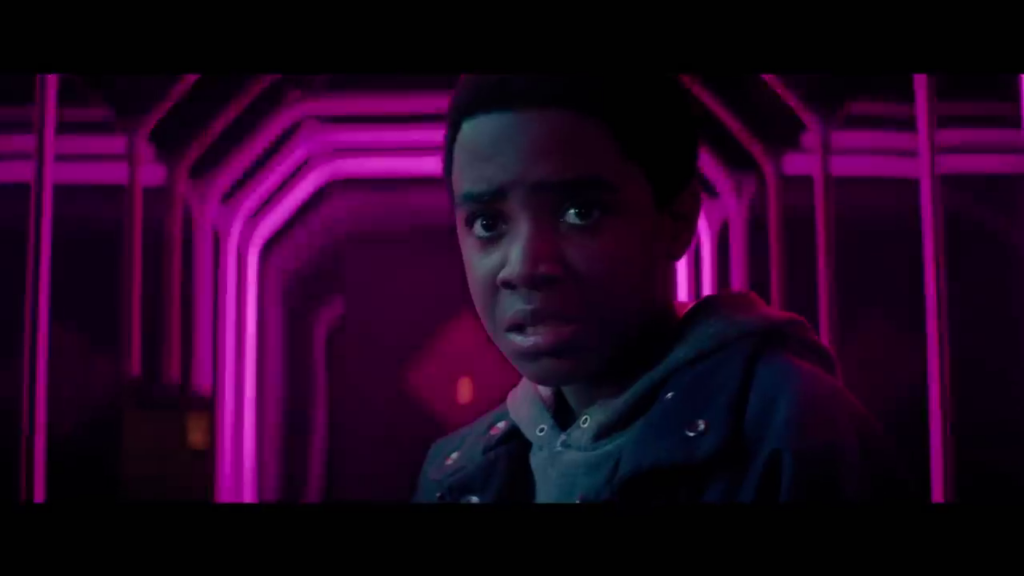
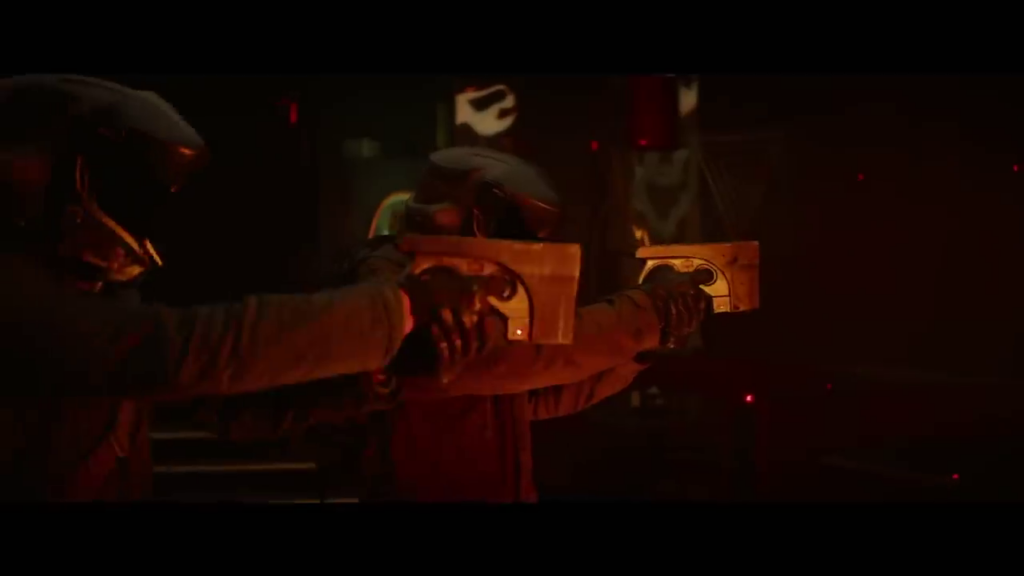
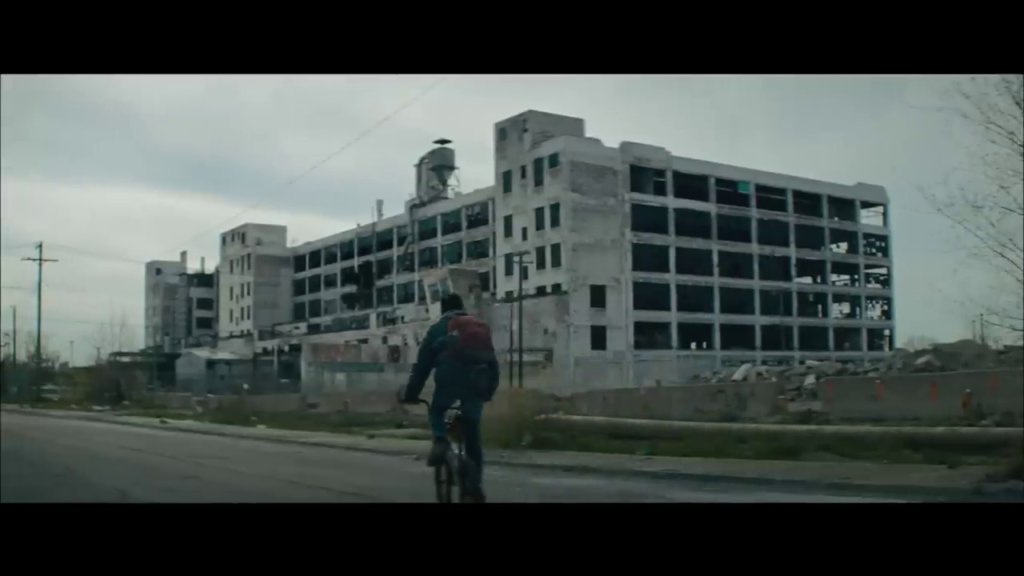
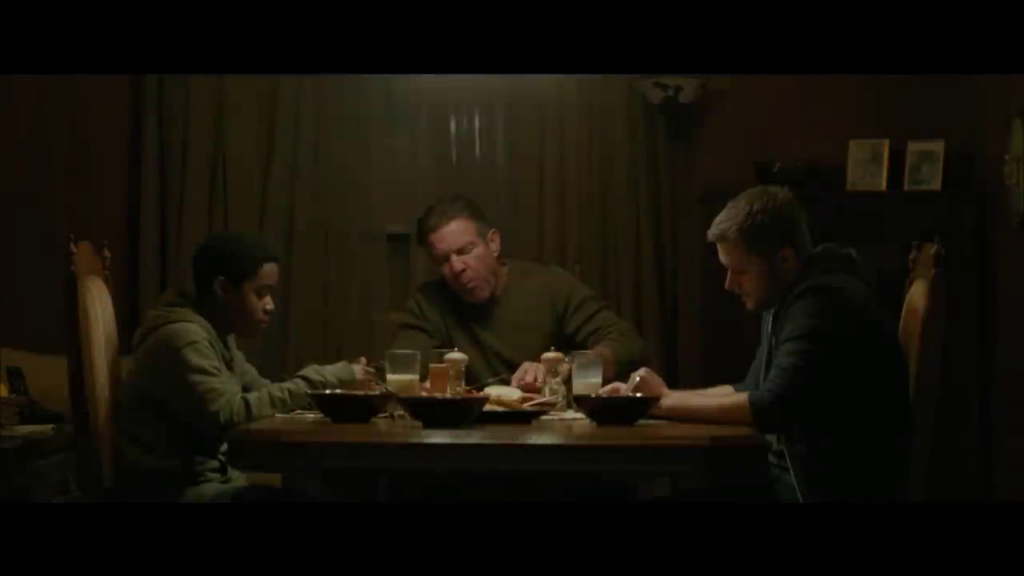
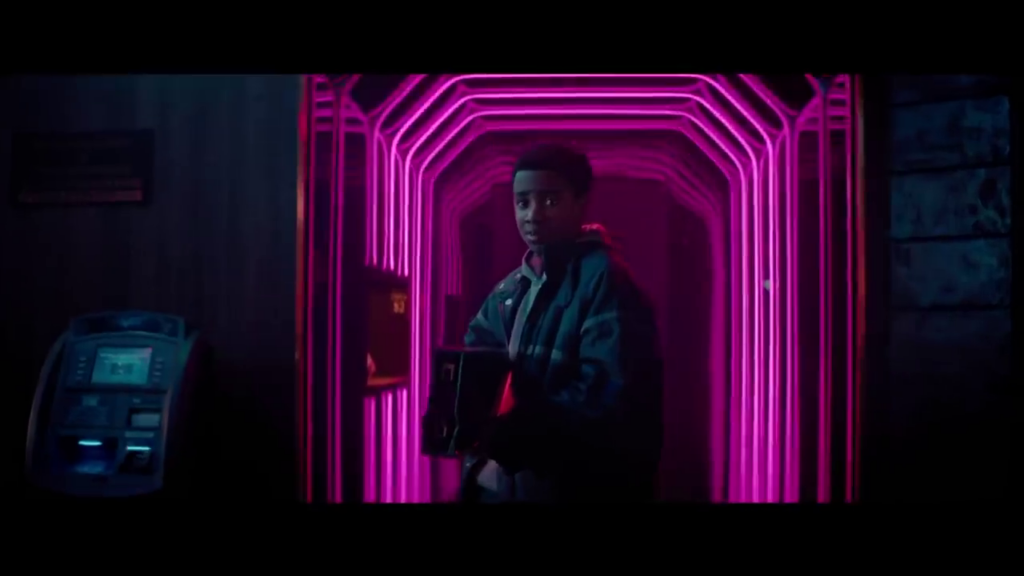
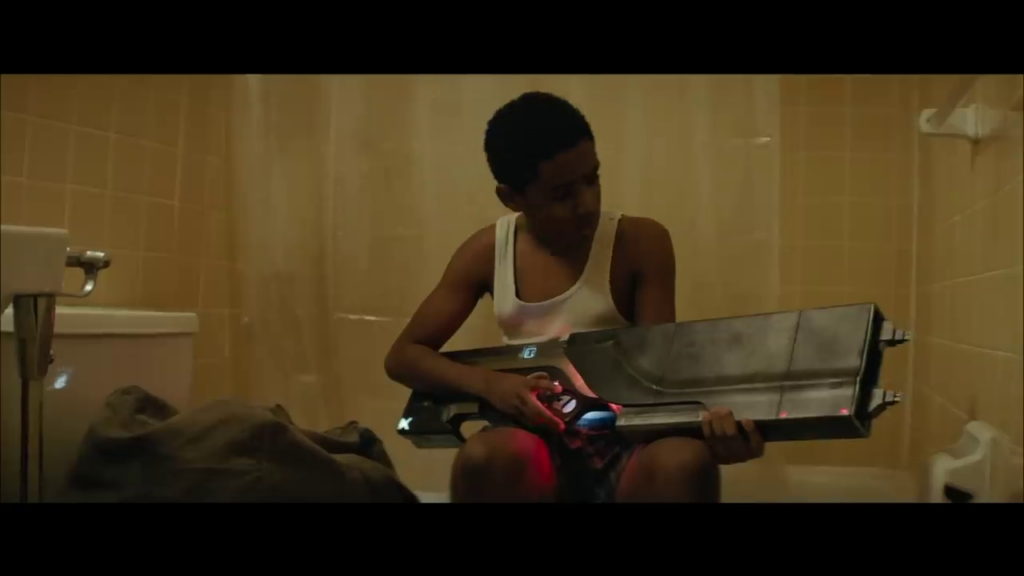


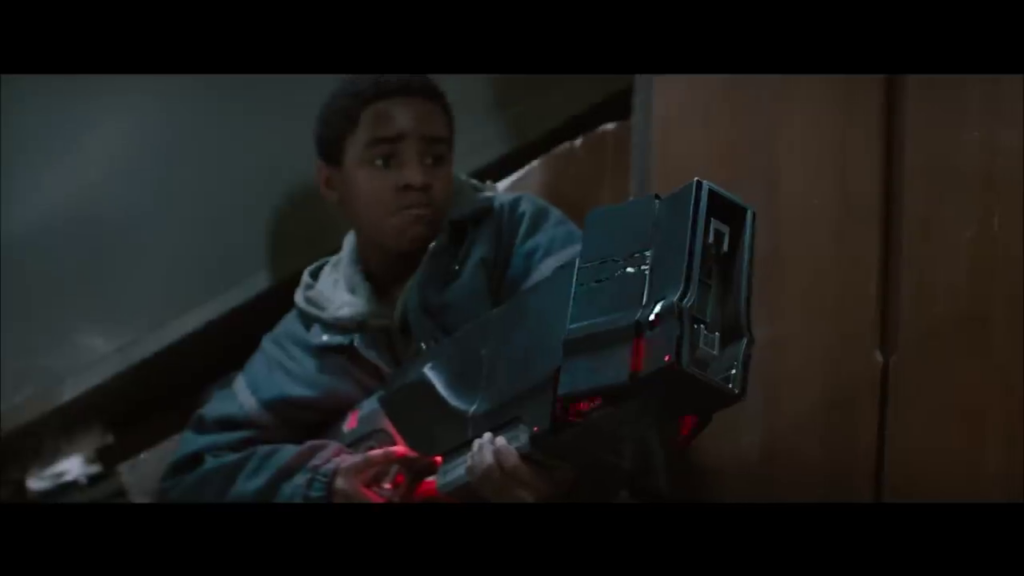
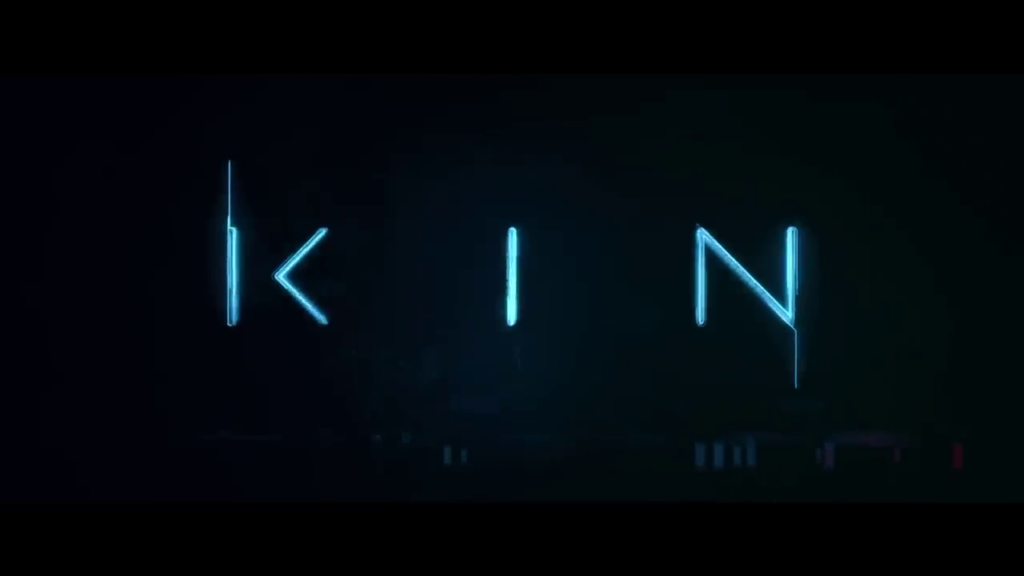
Kin (2018)
Film review #618
Director: Jonathan Baker, Josh Baker
SYNOPSIS: Eli Solinksi is a fourteen-year old boy who is scavenging copper wire to sell from abandoned buildings. One day, he comes across the aftermath of a battle of some sort, and a strange weapon, which activates when he touches it. At home, Eli’s adopted Father informs him that his son Jimmy is returning home after being in jail, and after some trouble, Jimmy decides to take Eli on a road trip, not telling him that their Father is dead and a criminal gang is hot on their tail…
THOUGHTS/ANALYSIS: Kin is a 2018 sci-fi film. The story centres around Eli, a fourteen-year old boy who lives with his adopted Father. He is scavenging abandoned buildings for copper wire when he comes across the aftermath of a battle, and a strange weapon that activates when he touches it. Meanwhile at home, his Father’s son Jimmy is released from prison, and, owing money to a local gang for protection, ends up robbing his Father’s safe. Catching them in the act, their Father is killed alongside the gang leader’s brother, and so Jimmy takes Eli on a road trip to escape from them, not telling Eli what has happened to their Dad. There’s a lot to take in there; the film is a sci-fi, family drama, road trip film all rolled into one. Perhaps expectedly, the film has troubles balancing all of these different elements. The core part of the story is this family drama and the bond between Jimmy and Eli, with it developing through this road trip. The problem with this is that the film seems to have picked the most mundane element to be the focus, and leans heavily on very typical tropes for that genre. For example, that Jimmy doesn’t tell Eli that their Father is dead, and keeps trying to tell him before being interrupted, leaving Eli to eventually find out through a TV report, is just so incredibly cliché it ruins any sense of personal character development. Another issue with this is that the film scuppers any relationship between the two main characters by having their bonding through montages, which don’t really give the characters space to interact beyond the generic stuff.
Another issue I had was that the characters don’t really deliver emotional performances. I don’t think this is fault on part of the actors; for some reason, none of the characters get really angry, or upset or anything, and what should be the most emotional scenes fall flat for this reason. Also, Eli kills a lot of people, and its never once addressed, or the consequences wrestled with. The film’s strong points are its action scenes, and the sci-fi element promises some mystery and a unique twist, but it’s mostly forgotten about until the end when someone turns up to just explain everything away. There’s some good things in here, but Kin tries to do too much, and puts its emphasis in the wrong places. This leads to the film ultimately falling back on well worn tropes that further erode the ability to develop it’s core characters and their relationship. Not terrible, but it’s flaws are plain to see.
-
#617 – Invisible Mom (1996)
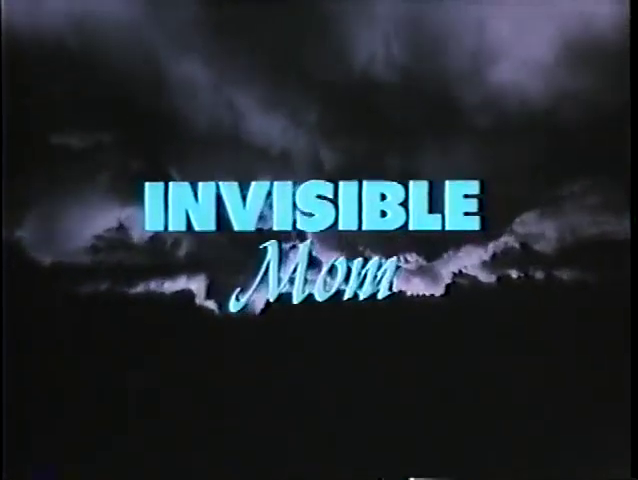
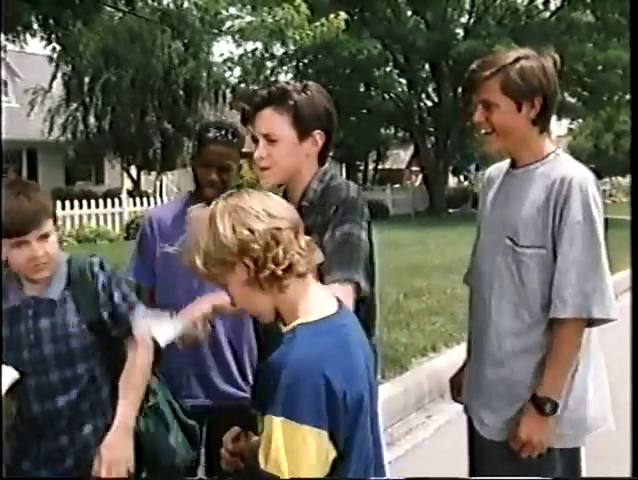




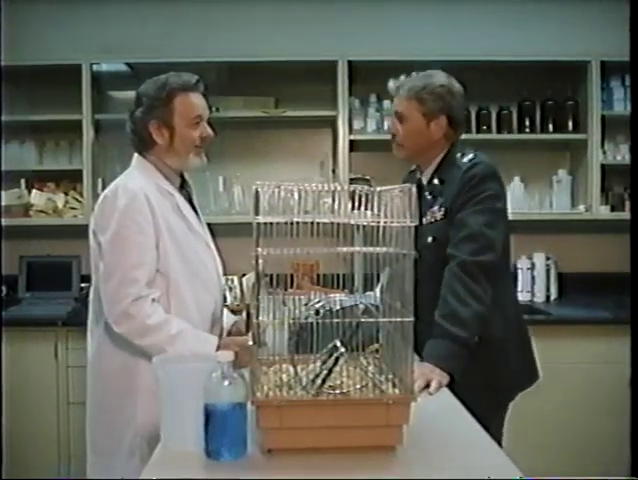


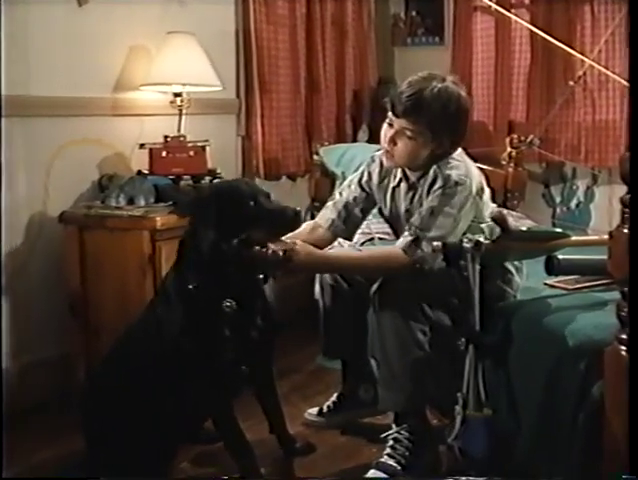
Invisible Mom (1996)
Film review #617
Director: Fred Olen Ray
SYNOPSIS: Scientist Karl Griffin invents a formula that turns people invisible when they drink it. When his wife drinks it by accident, she turns invisible, and without an antidote, can’t turn back. When Karl’s supervisor learns of the discovery, he tries to take the invention and credit for himself, and Karl must find a way to turn his wife visible again…
THOUGHTS/ANALYSIS: Invisible Mom is a 1996 sci-fi film. The plot revolves around Josh Griffin, a kid whose father, Karl is a scientist who is always inventing things. When he invents an invisibility potion that his wife accidentally drinks, she is stuck invisible because Karl is yet to find an antidote. Karl’s invention is stolen by his supervisor, who wants to take the credit for it, and Karl is arrested, meaning that it is up to Invisible Mom to try and save the day. There’s very little else going on in the film: it’s a family-friendly feature with low stakes and minimal danger. The consequences of Josh’s Mom turning invisible include the very usual consequences, including getting back at the bully kid who is picking on Josh, and it’s all very safe and predictable stuff.
In a surprise to no one, this is a very low budget film with not much going for it: having invisible characters probably helps with the cost too. The acting is…fine for what the film is, as no one has to do anything really difficult or extravagant. The characters are very cookie-cutter and are instantly forgettable, engaging in a very unoriginal plot that only very young children might be entertained by. There’s not much else to review in this film: Invisible Mom is a predictable children’s film that makes little to no effort to have fun with with the concept, whether this is due to a lack of imagination in the writing, or a lack of budget to actually do anything other than have people stand around talking. A film about invisibility you’re better off not seeing.
-
#616 – D-Railed (2019)
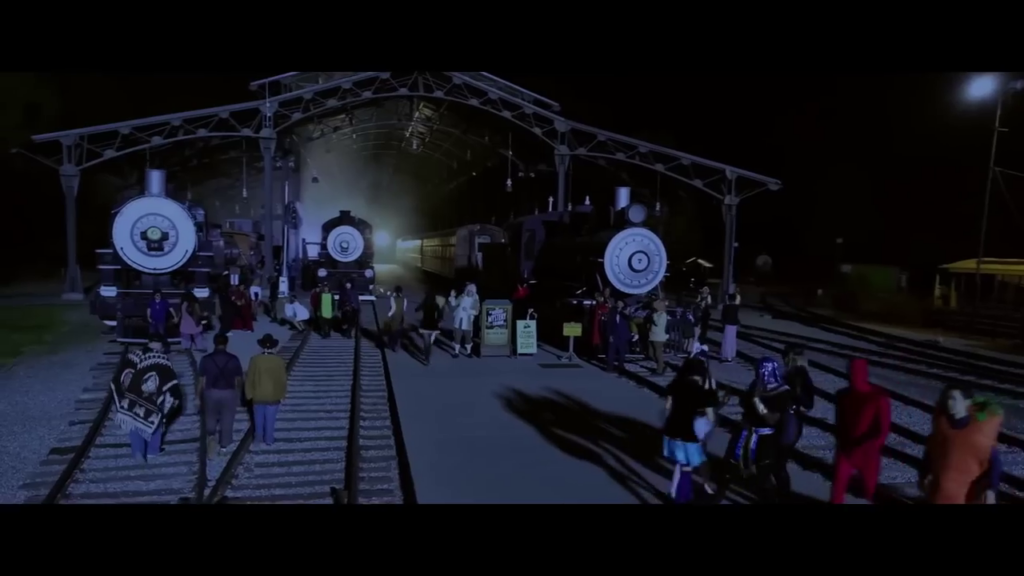
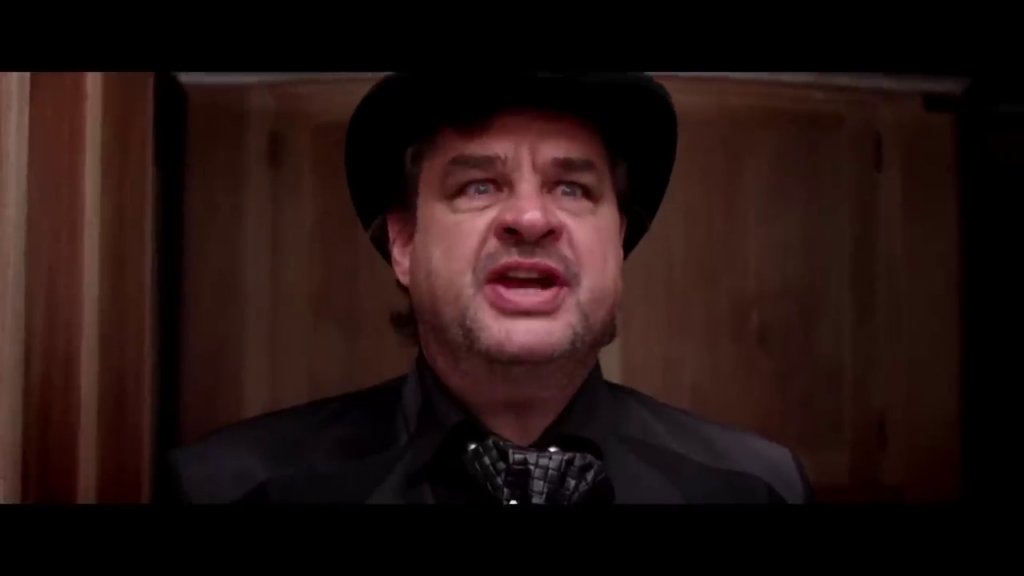



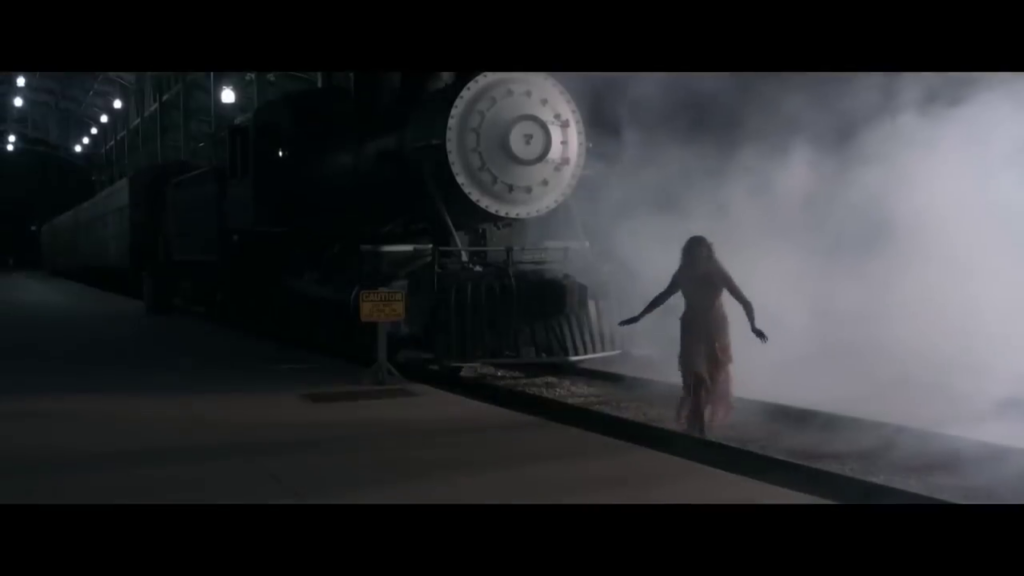
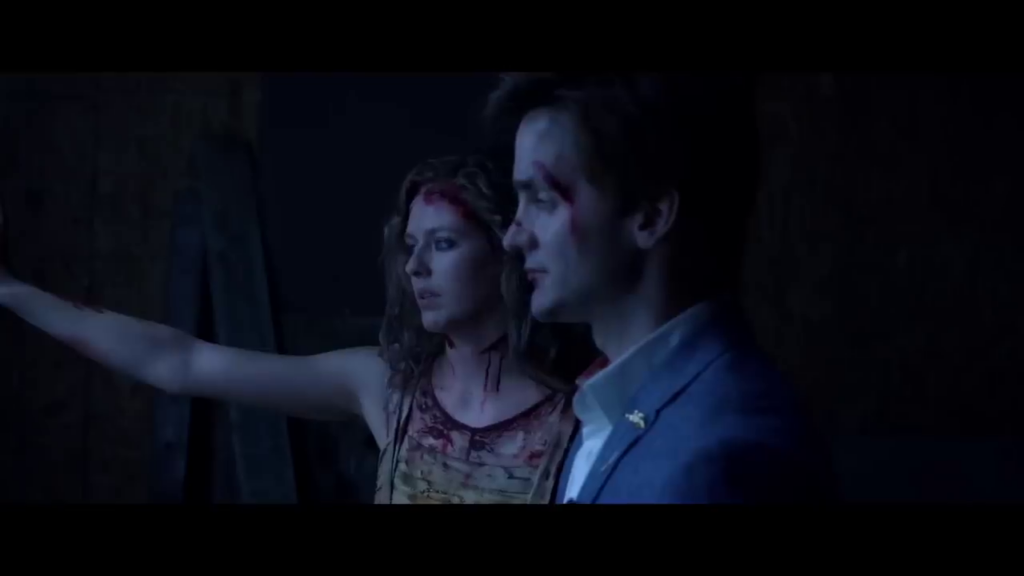
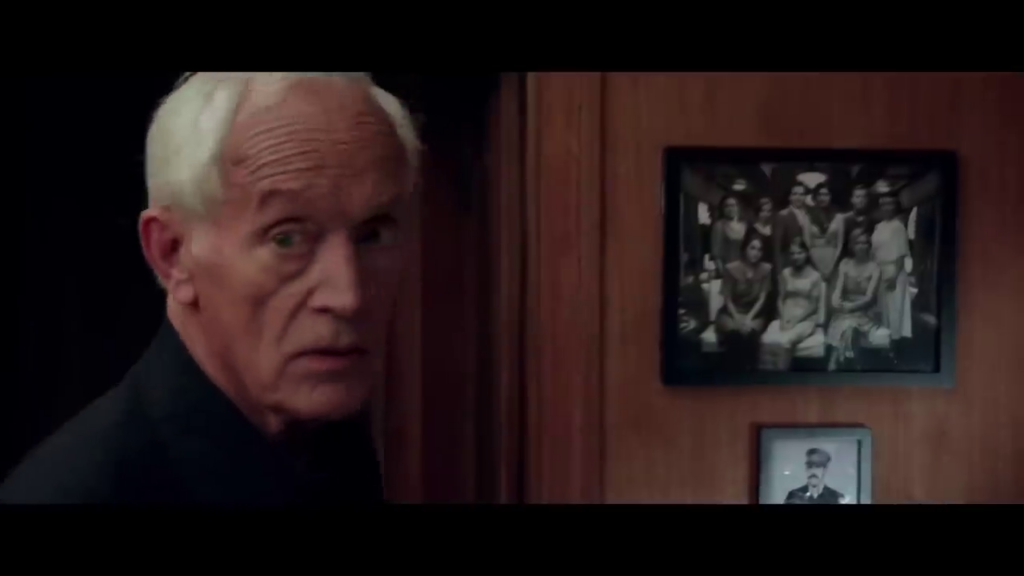
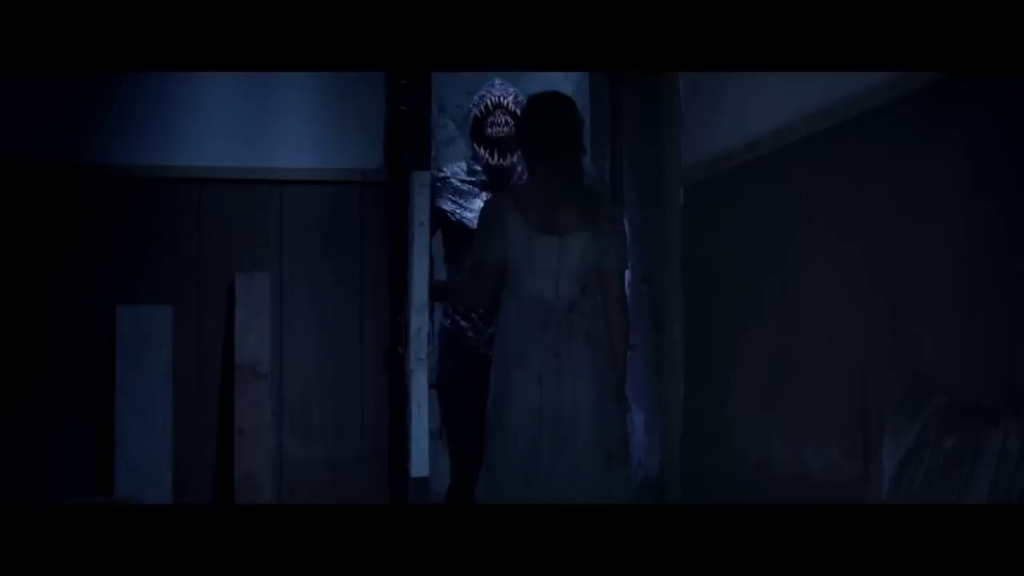
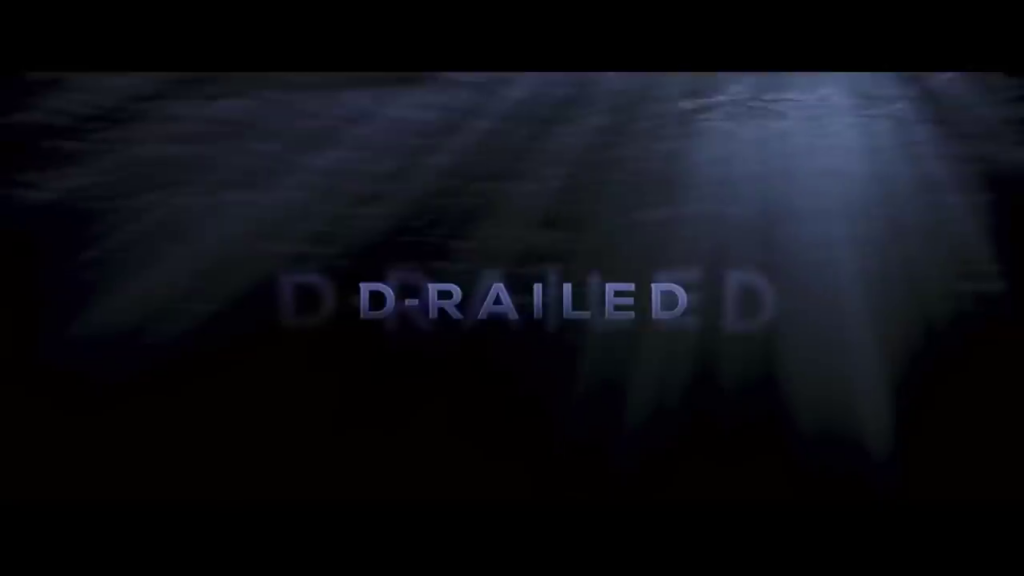
D-Railed (2019)
Film review #616
Director: Dale Fabrigar
SYNOPSIS: A murder mystery event takes place on board the train, and the guests find themselves caught up in a robbery, as what is real and what is performance starts to be called into question. The train derails into a lake, where a sinister monster is waiting in the waters ready to pick the survivors off…
THOUGHTS/ANALYSIS: D-Railed is a 2019 horror film. Starting off with a murder mystery event being held on a train, the participants get on board and are introduced to the event, and from there, things quickly spiral out of control, as a robbery takes place aboard the train, and the line between what is real and what is part of the event quickly blurs. Honestly, or a low budget affair, the opening act is pretty interesting: the question of what is part of the act and what is real becomes impossible to discern as the action moves pretty fast. Perhaps the characters could have questioned what was real and what was not a bit more, as they just suddenly swap from one to the other, but as viewers, it certainly has a least some intrigue that pulls you in.
Eventually, the train derails and lands in a lake, where a monster starts picking off the survivors. This is where the film itself starts to literally derail as well: the whole blurring of what’s real and what is dropped, and instead we just get a monster coming out of nowhere that starts picking people off quickly, with no real time to make the deaths meaningful. The monster itself is not established in any significant way: there’s no deep lore, mythos, origins, or reason for it to exist, so it doesn’t have much presence as a character. The film’s premise (based on the trailer anyway) is that the characters are trapped on a railway carriage in the middle of a lake as a monster lurks below the water. However, this forms the basis for about ten minutes of the film, as it feels like it quickly runs out of ideas of what to do on a railway. They also rather quickly establish that the shoreline isn’t too far away, so it makes it much less of an issue when they can just swim to the shore.
The survivors make their way to an abandoned house or something, where they’re all picked off by the monster until one remains, who manages to escape back to railway station where the train departed, asking one of the attendees for help. However, in the final twist, it turns out (spoiler) that the murder mystery event actually took place one hundred years ago, and there were no survivors, so the attendee saw a…ghost or something? Here’s the main problem with this film: absolutely nothing is explained or justified. We don’t know anything about the monster, the survivor, anything. In some films you can leave things up to interpretation, but this is not one of them. It explains that the murder mystery event actually took place one hundred years ago and…just stops, expecting us to be satisfied with that. There is no payoff to sitting through this jumbled mess of a film.
The sets are clearly all constructed from plywood, and the monster design isn’t really that convincing. CG effects too are lacklustre, and all this jus adds up to a jumbled mess of a film. I stand by that the premise of the opening act is at least intriguing, and handled well in terms of pace and editing, but the film quite literally derails when the train itself does, rushing too quickly ahead and burning itself out before trying to tie everything together at the end with a barebones explanation that goes nowhere far enough to justify the viewing. Train wreck.
-
#615 – Flashback (2020)
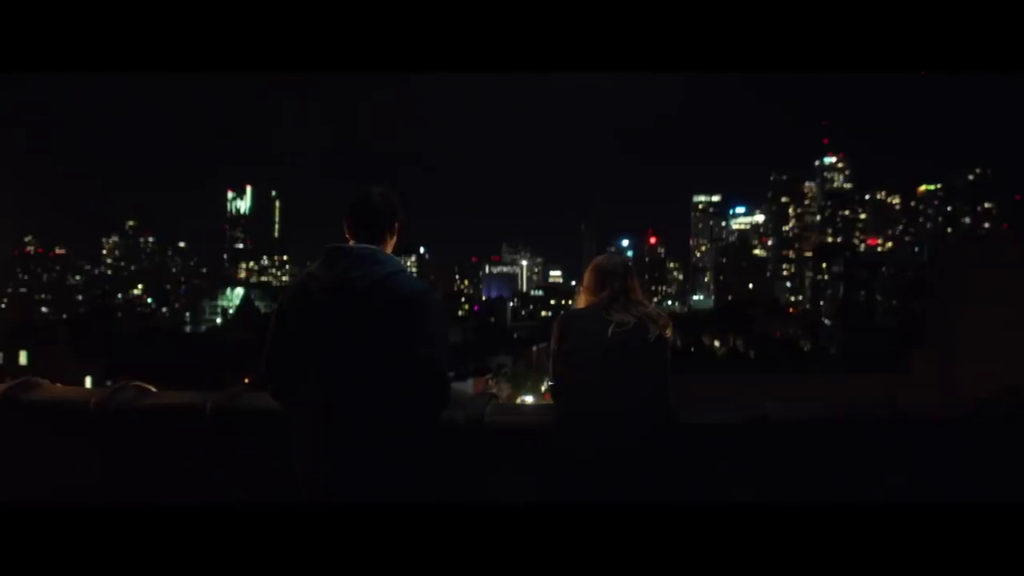
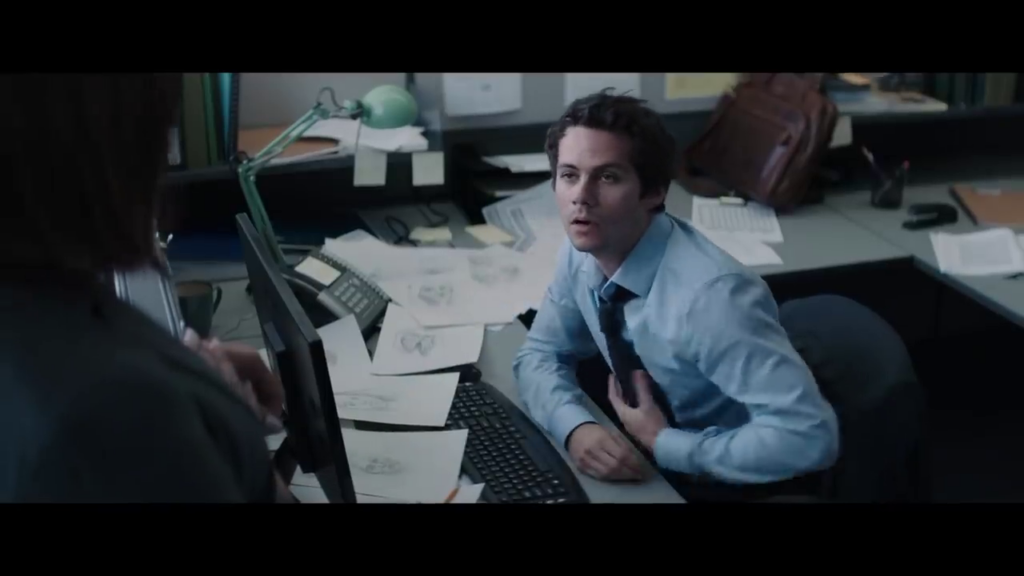
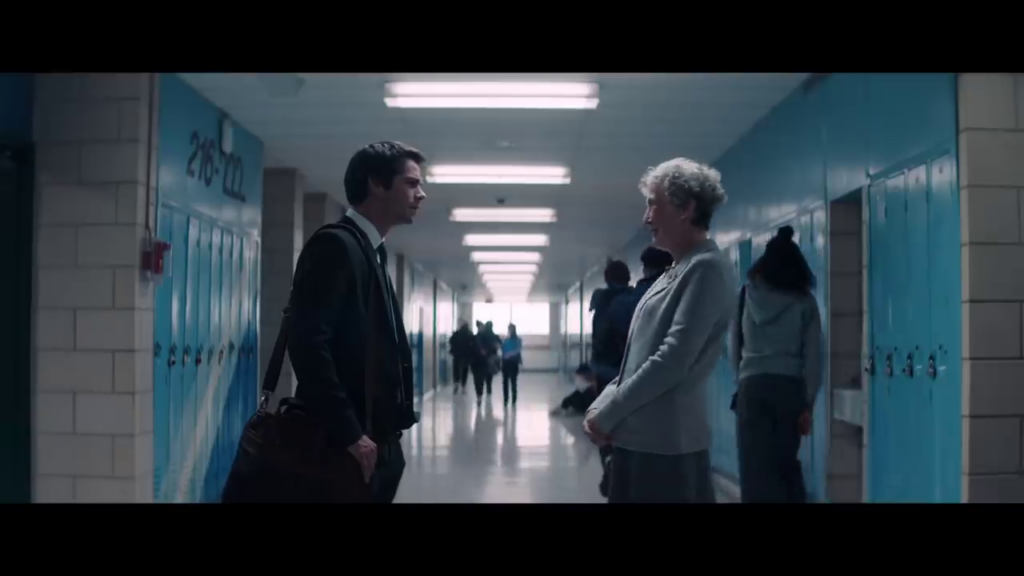

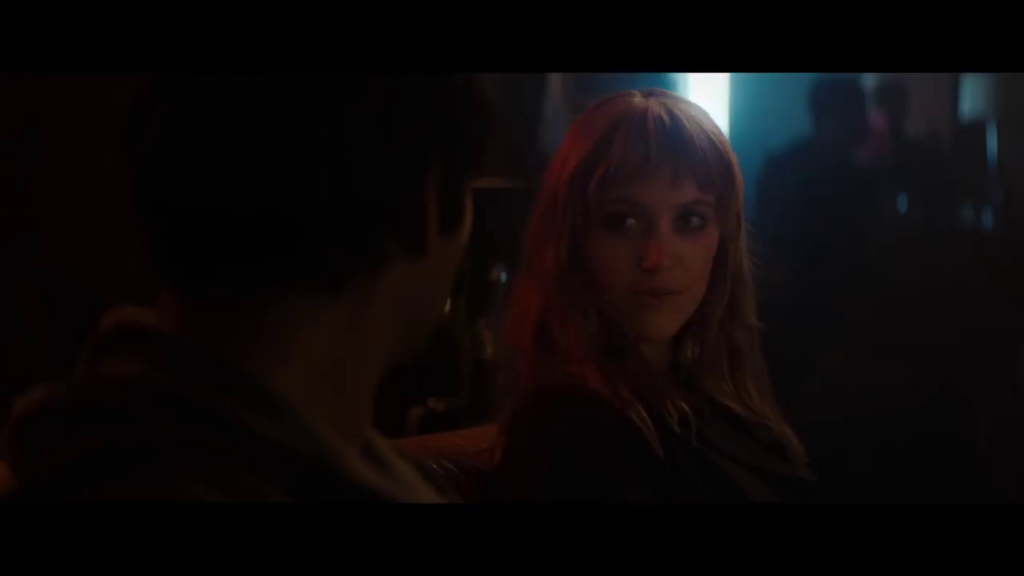

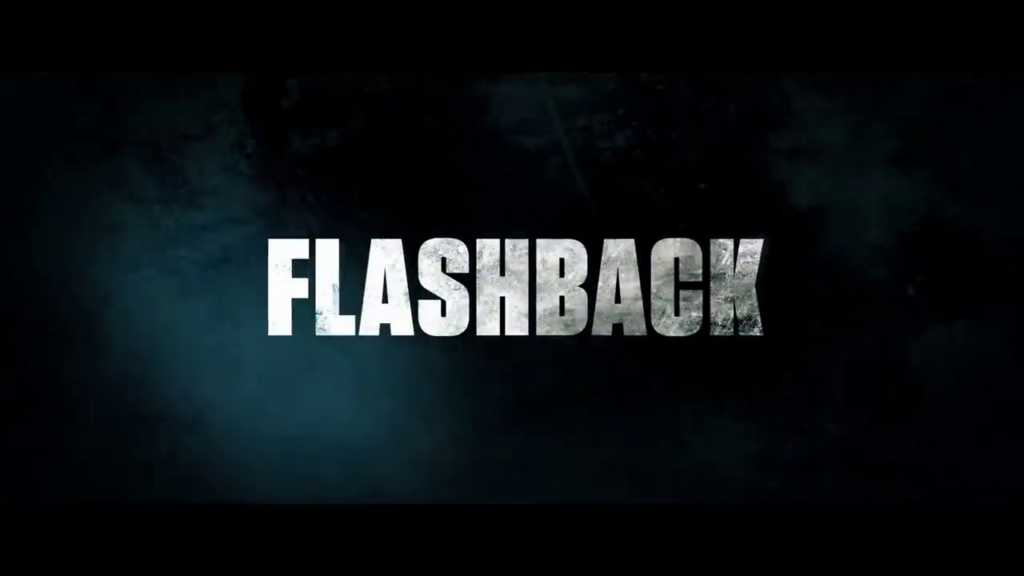
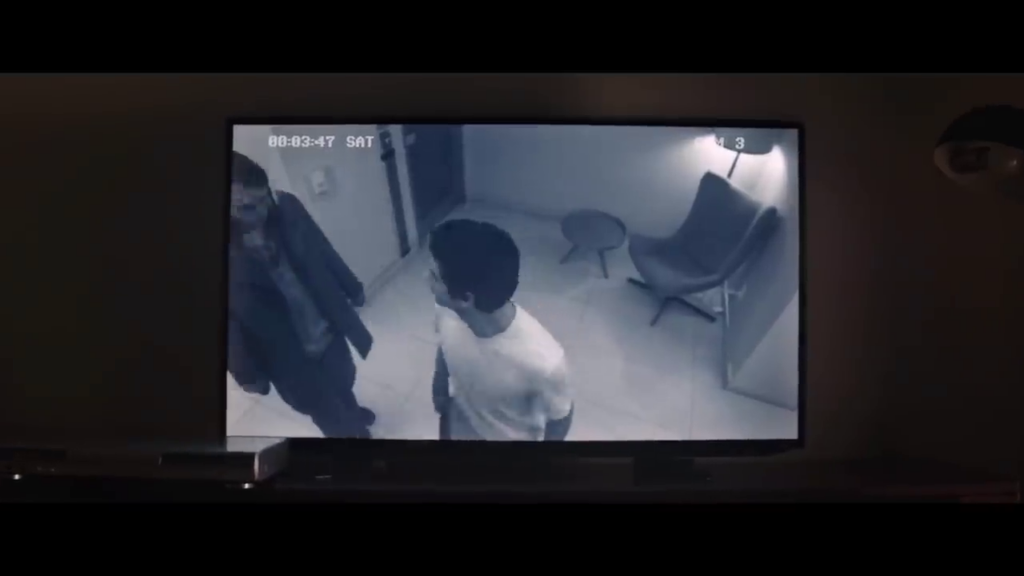
Flashback (2020)
Film review #615
Director: Christopher MacBride
SYNOPSIS: Fred visits his dying Mother in hospital, and begins to get flashbacks about a girl in high school who mysteriously went missing. As he becomes obsessed with trying to find her and get answers, his past, present and future all start to blend into one, as Fred has to make a choice about his life…
THOUGHTS/ANALYSIS: Flashback is a 2020 film. The film revolves around Fred, who lives a fairly normal life with his wife, and typical office job. After visiting his Mother in hospital, Fred starts to have flashbacks about a girl named Cindy, who went missing during his high school days. As his flashbacks become more vivid, and his obsession with finding out what happened to Cindy grows, his sense of reality begins to be called into question, as his past, present, future, and their inherent possibilities begin to overlap and be called into question. Flashback is clearly taking inspiration from films such as Donnie Darko, in which the troubled lead either slowly loses his grasp on reality, or is actually getting closer to the truth, depending on how you interpret it. A complex narrative weaves its way through the story that, honestly, I thought was a complete mess. The film goes overboard with its ideas and pushes the questioning of reality to the point where nothing really matters. Trying to hinge everything around the character of Cindy doesn’t really help things either. Whether Fred’s experiences were all just a bad drug trip, aliens that are forcing humans to experience time linearly when they shouldn’t, or just some sort of breakdown at dealing with the death of his Mother, I honestly felt the film didn’t offer enough for a viewer to draw their own conclusions. Maybe it’s a film that requires multiple viewings to really grasp, but it isn’t compelling enough to make me feel like I would ever want to watch it again.
Fred is a fairly normal, uninteresting character: he has a wife, job and all the normal stuff, and I suppose that’s why him being drawn into this bizarre situation is supposed to be more significant. However, I feel giving him a personality or something interesting about him, a personal connection etc. would have made what happens to him more interesting. Given that his past, present, and future are all blended into one, along with the various possibilities that they can take, you get the sense that nothing matters if everything is possible. You could probably make the film work around that, but again, it just doesn’t. It’s like if you took Everything, Everywhere, All at Once, and sucked all the fun out of it. The supporting characters are again fairly uninteresting, and only really exist as comparisons for how far Fred is or isn’t connected to reality.
There are moments where the film does get it right, the ending has an emotional impact, but these aren’t enough to bring the film together. The ending where Fred decides he “can’t follow” Cindy and falls back to his normal linear life is an odd one that doesn’t really feel justified, and makes the whole experience feels pointless. Maybe it’s a message of accepting what you have in the face of all the other possibilities, but this doesn’t feel earned. Overall, Flashback does it’s best as a mid-sized film, but a sense of overambition and inability to engage or entertain in the face of it’s overwhelming possibilities leaves it mostly dull and without consequence, and overshadowed by the films it is clearly inspired by (Donnie Darko, Matrix etc.). Maybe someone can appreciate it, and they apparently do, given that the film’s scores and reviews are not completely awful, but it’s definitely not for me.
